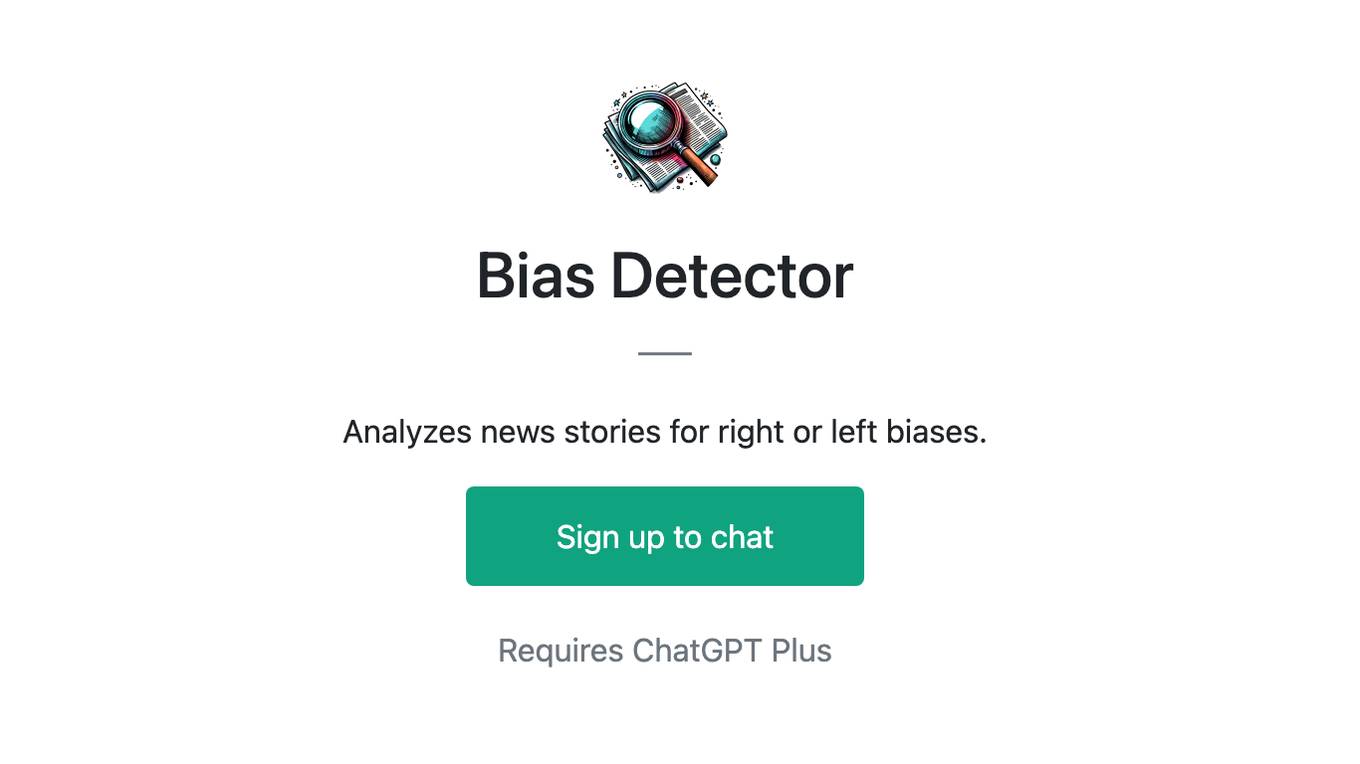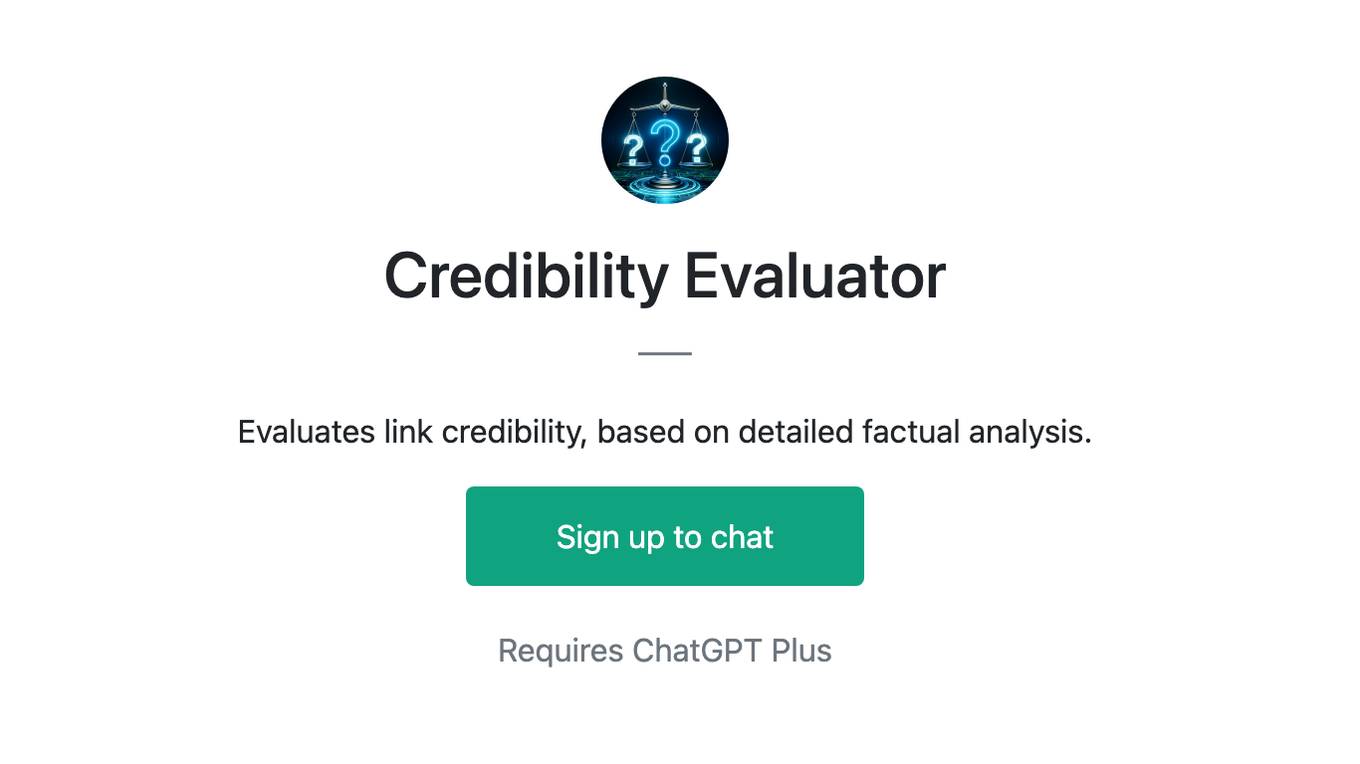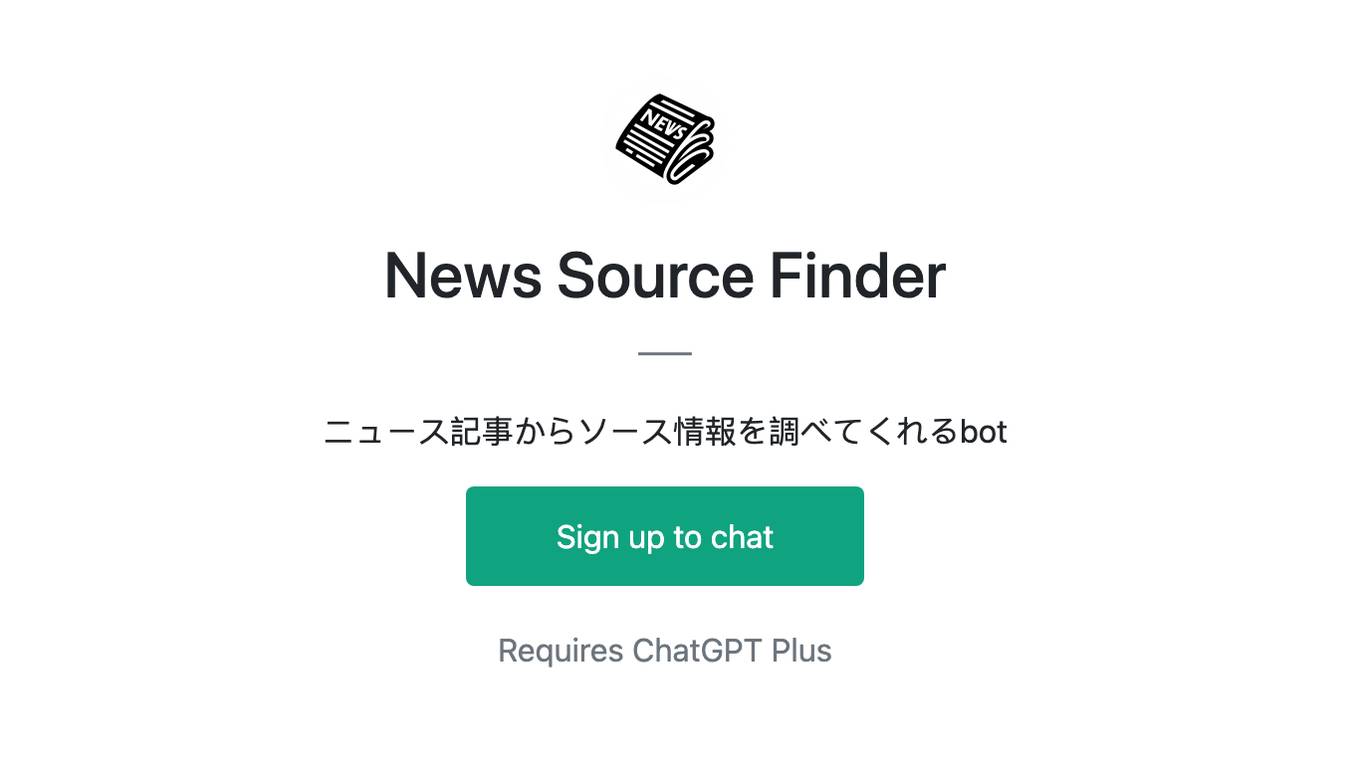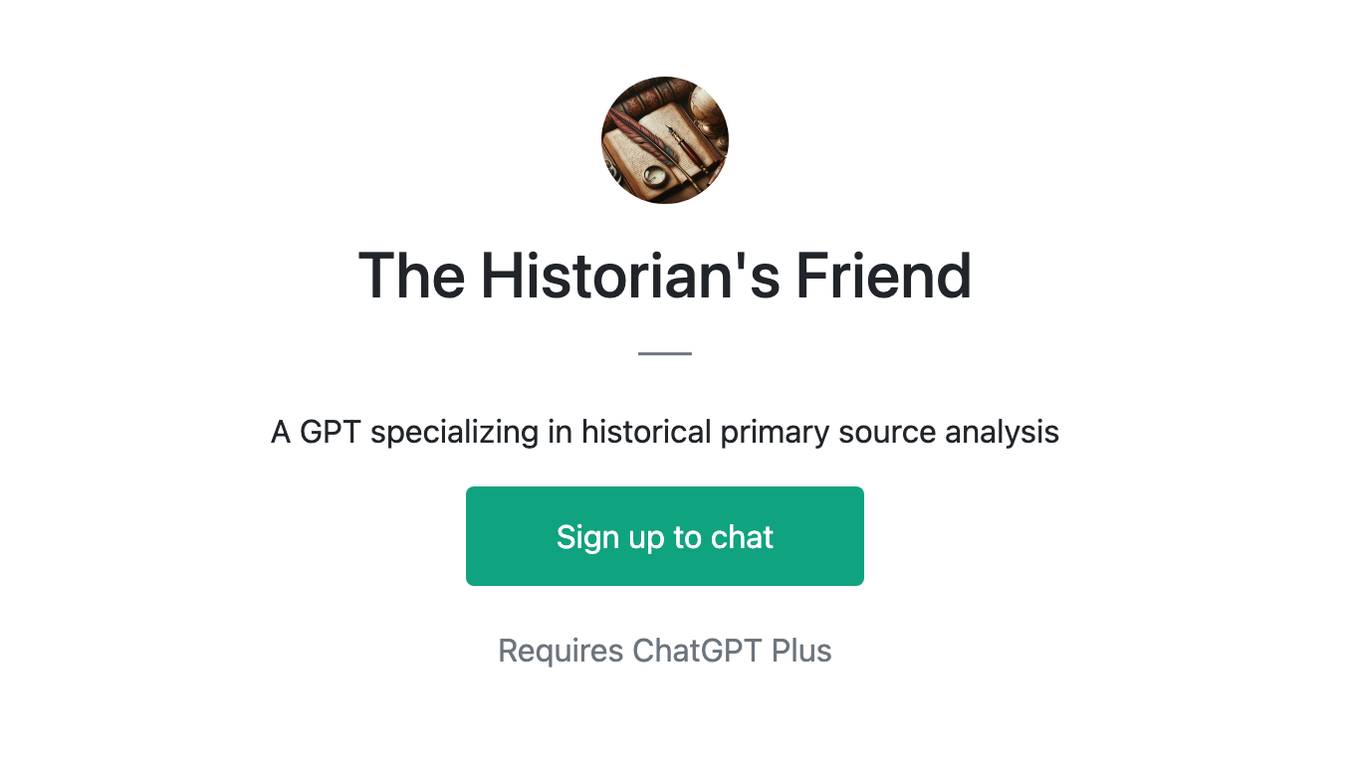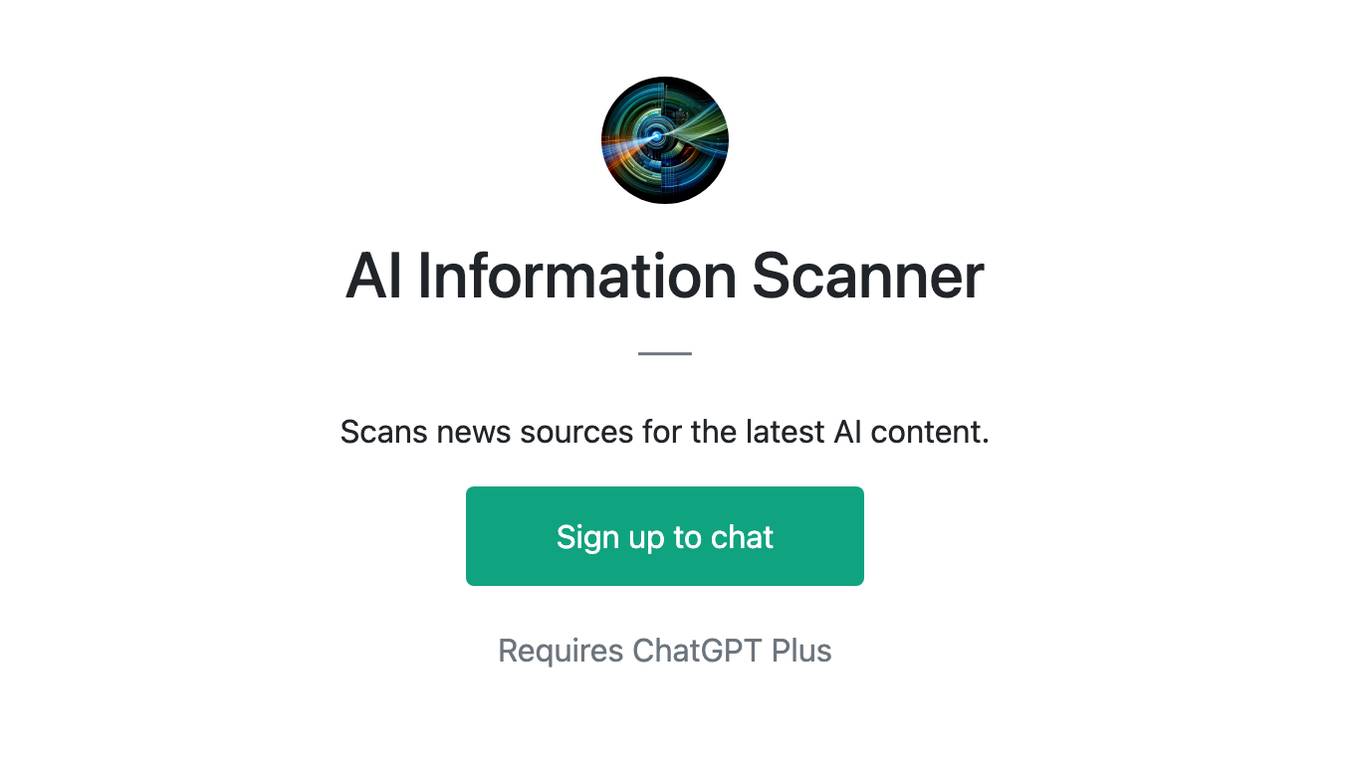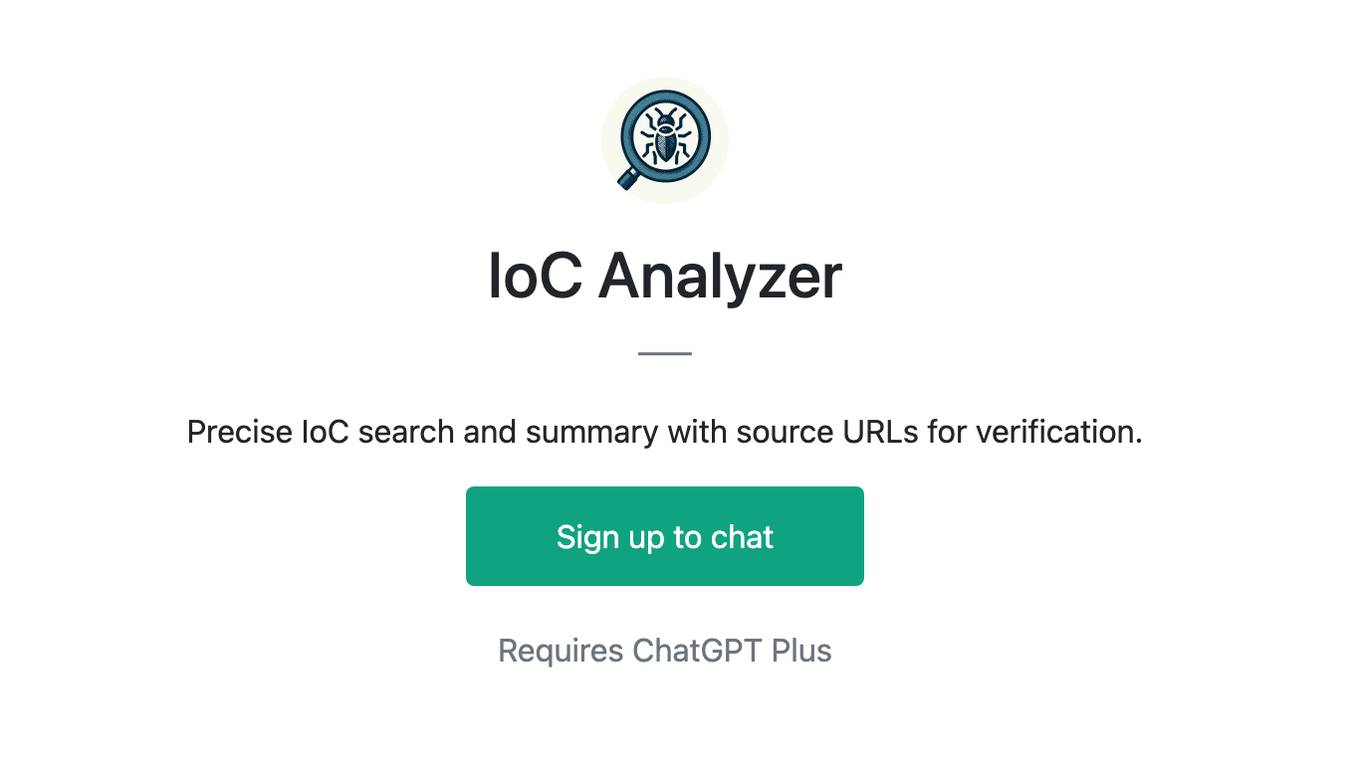Best AI tools for< Identify Source >
20 - AI tool Sites
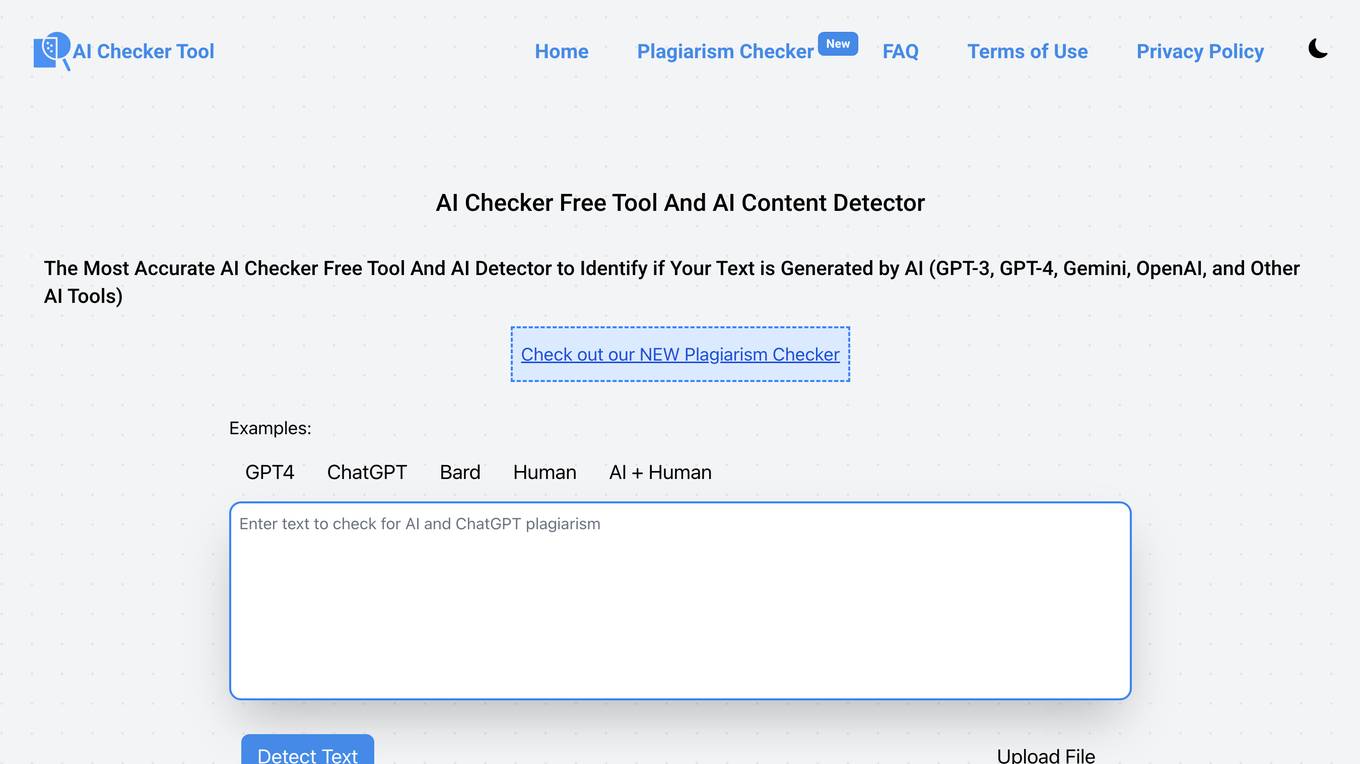
AI Checker
AI Checker is a free tool and plagiarism detector that accurately identifies if a text is generated by AI tools like GPT-3, GPT-4, Gemini, OpenAI, and others. It helps users protect their content by detecting AI-generated text and human-written content. The tool uses advanced algorithms to provide accurate results and percentage analysis of AI-generated content within a text. AI Checker is beneficial for writers, students, educators, content marketers, freelancers, editors, publishers, researchers, and content consumers across different languages and contexts.

Crossplag
Crossplag is a plagiarism checker that uses AI to detect plagiarism in over 100 languages. It is the first and only plagiarism tool that offers both single-language and translation plagiarism checking. Crossplag is used by students, teachers, writers, bloggers, and businesses to ensure originality in their work.
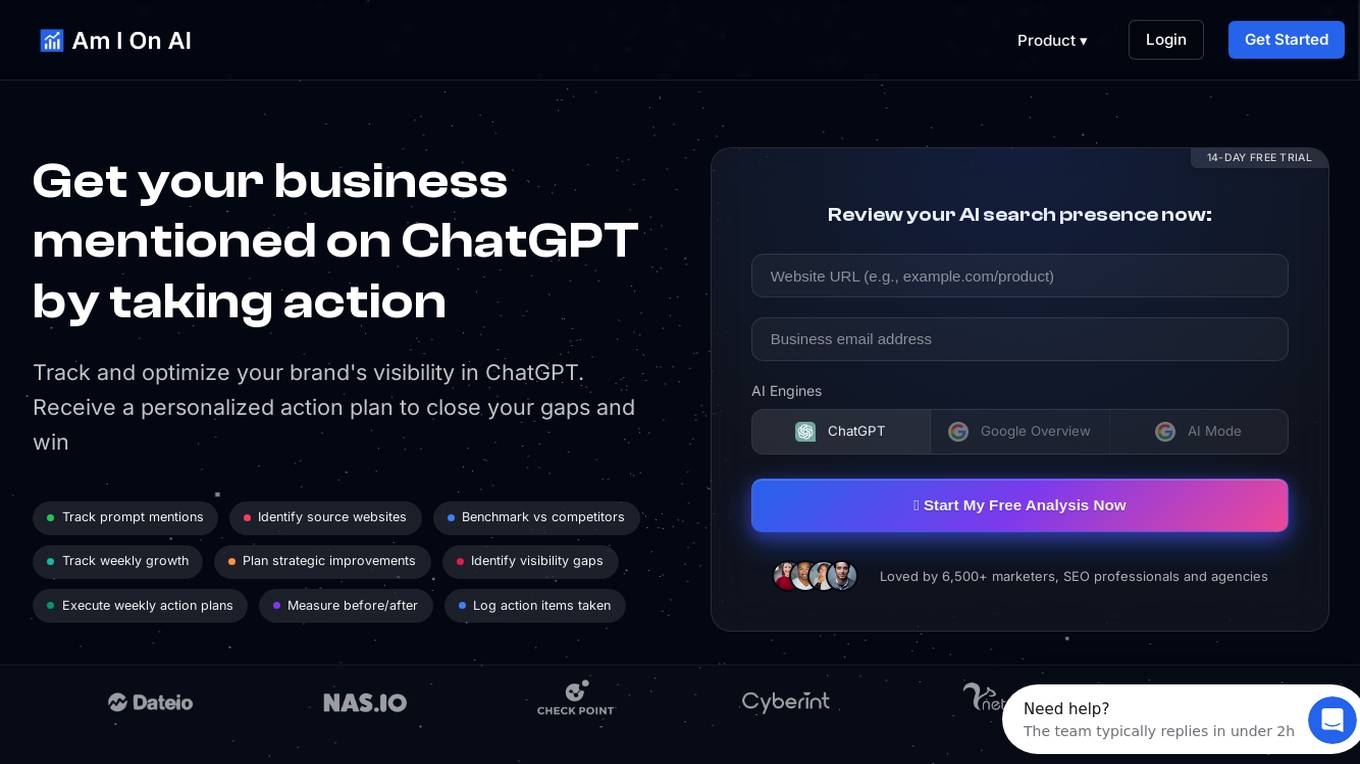
Am I On AI
Am I On AI is a platform designed to help businesses improve their visibility in AI responses, specifically focusing on ChatGPT. It provides personalized action plans to enhance brand visibility, track mentions, identify source websites, benchmark against competitors, and execute strategic improvements. The platform offers features such as AI brand monitoring, competitor rank analysis, sentiment analysis, citation tracking, and actionable insights. With a user-friendly interface and measurable results, Am I On AI is a valuable tool for marketers, SEO professionals, and agencies looking to optimize their AI visibility.
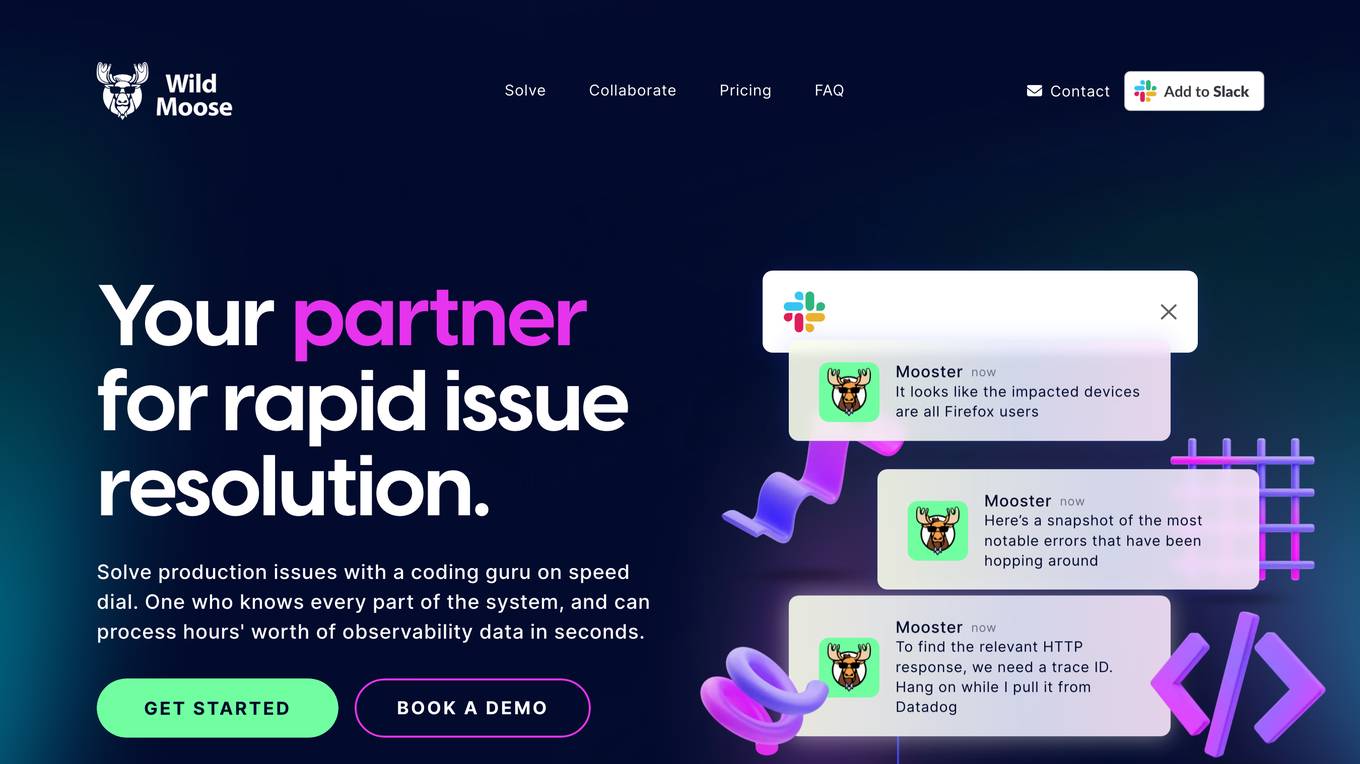
Wild Moose
Wild Moose is an AI-powered SRE Copilot tool designed to help companies handle incidents efficiently. It offers fast and efficient root cause analysis that improves with every incident by automatically gathering and analyzing logs, metrics, and code to pinpoint root causes. The tool converts tribal knowledge into custom playbooks, constantly improves performance with a system model that learns from each incident, and integrates seamlessly with various observability tools and deployment platforms. Wild Moose reduces cognitive load on teams, automates routine tasks, and provides actionable insights in real-time, enabling teams to act fast during outages.
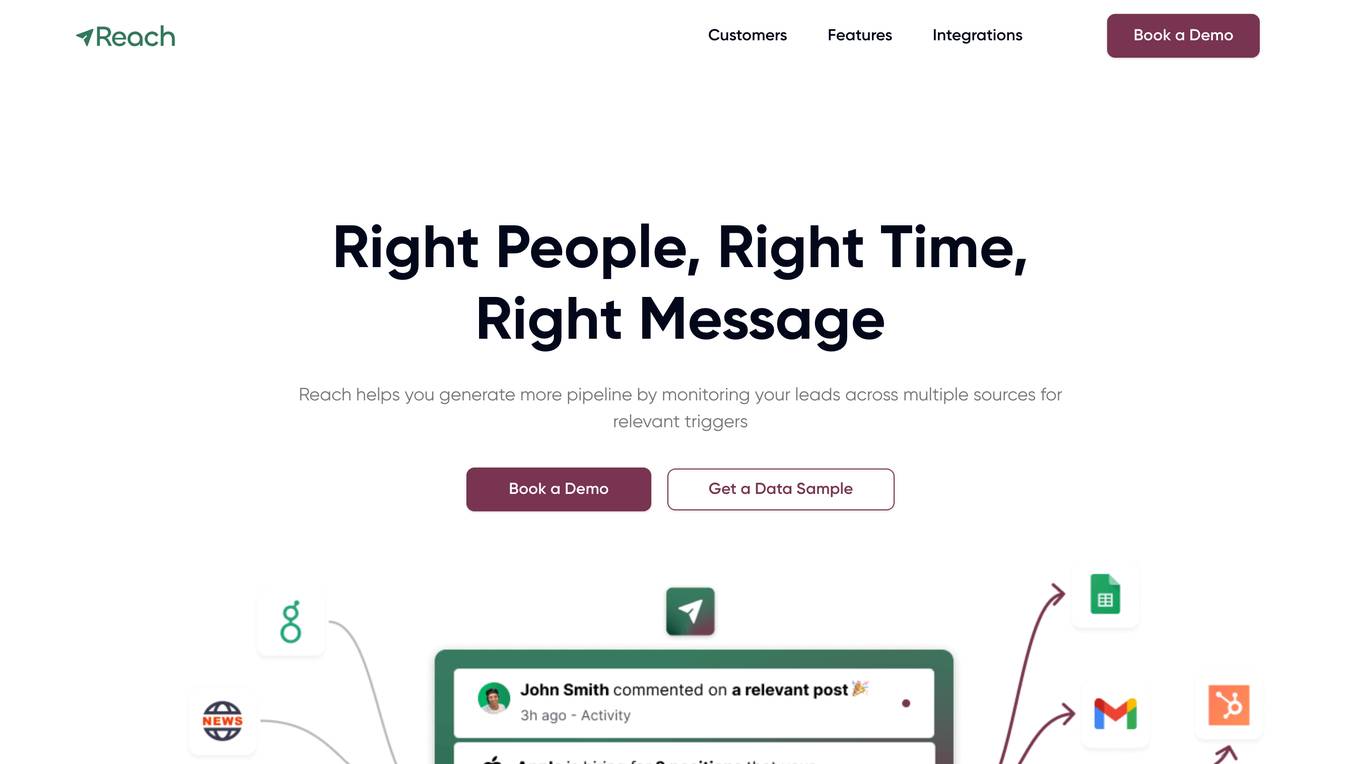
Reach
Reach is a sales engagement platform that helps businesses generate more leads and close more deals. It uses artificial intelligence to monitor leads across multiple data sources for relevant triggers, such as job changes, company news, and social media activity. Reach then provides sales reps with daily notifications of these triggers, along with personalized icebreaker suggestions and AI-generated copy. This enables sales reps to reach out to leads at the right time with the right message, increasing their chances of success.
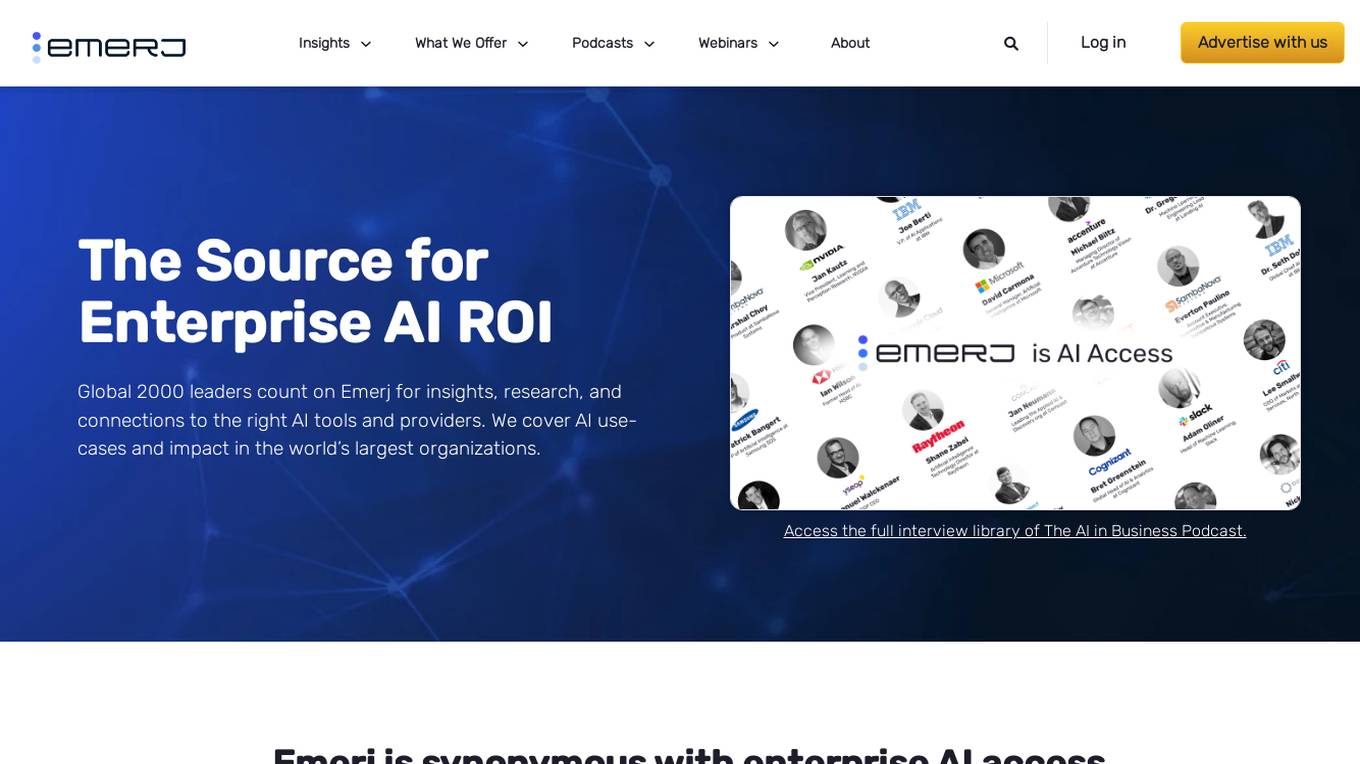
Emerj
Emerj is a leading provider of enterprise AI insights, research, and connections to the right AI tools and providers. We cover AI use-cases and impact in the world’s largest organizations. Our mission is to help businesses understand and implement AI to achieve their business goals.
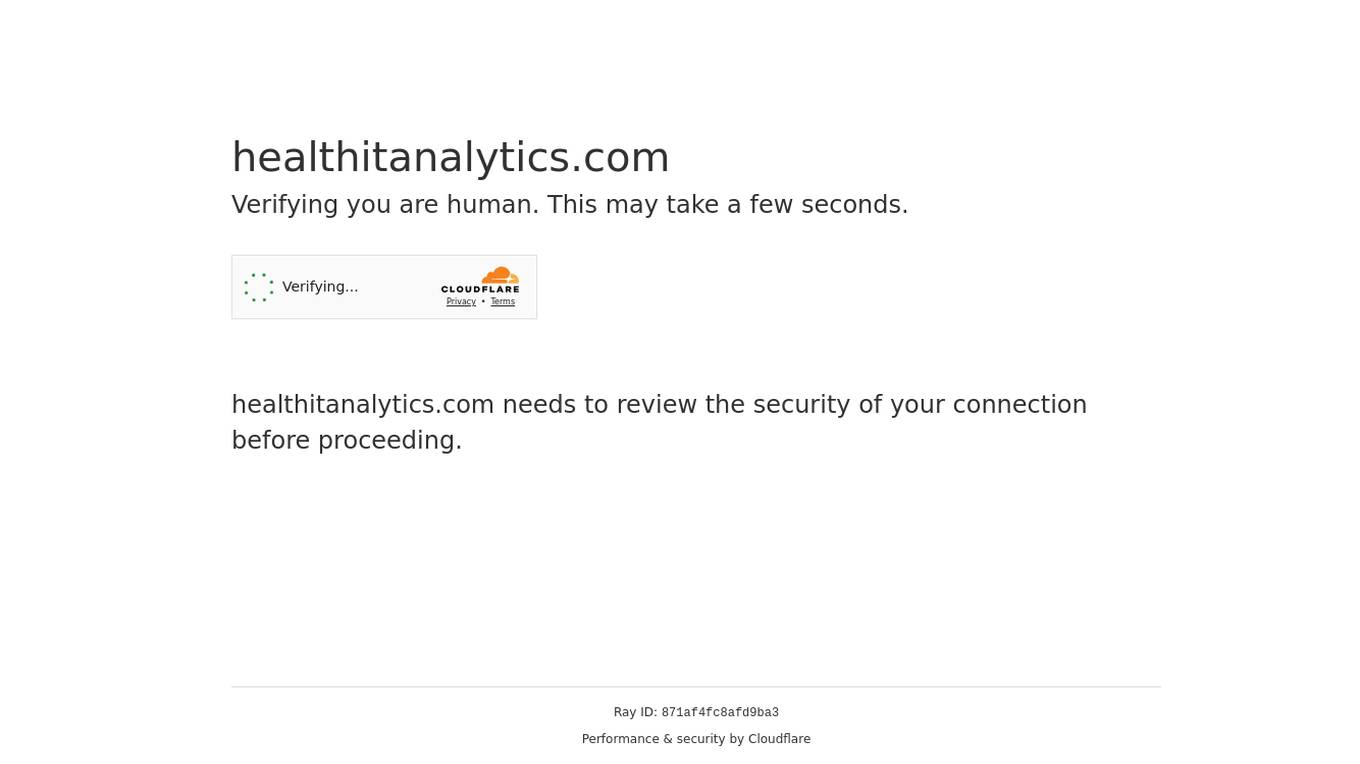
HealthITAnalytics
HealthITAnalytics is a leading source of news, insights, and analysis on the use of information technology in healthcare. The website covers a wide range of topics, including artificial intelligence, machine learning, data analytics, and population health management. HealthITAnalytics also provides resources for healthcare professionals, such as white papers, webinars, and podcasts.
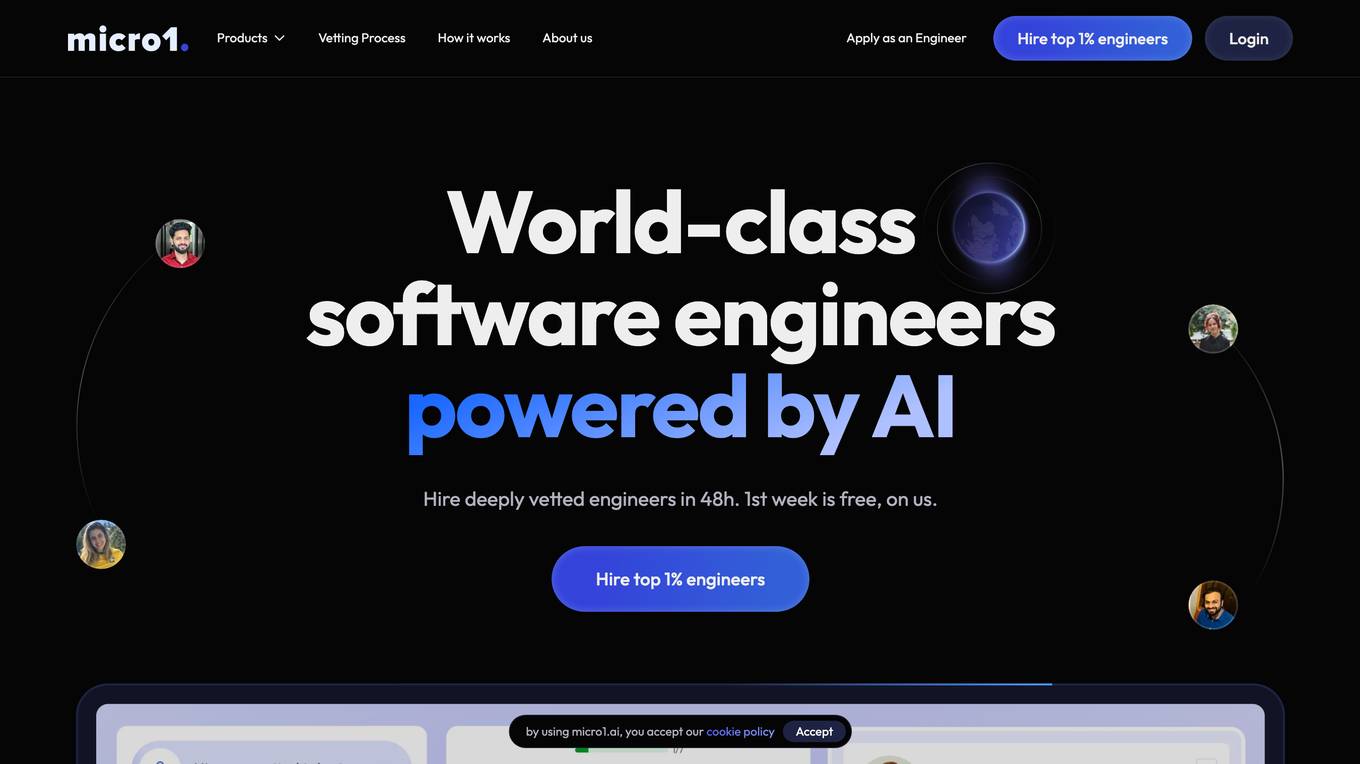
micro1
micro1 is an AI recruitment engine designed to hire top global talent efficiently. It utilizes human data produced by subject matter experts to provide end-to-end post-training services. The platform offers a Zara AI recruiter agent to identify and hire the best talent on earth, catering to various industries such as tech startups, staffing agencies, and enterprises. With features like sourcing and vetting candidates, seamless onboarding, and high-quality data training, micro1 aims to streamline the recruitment process and save time and costs for businesses. The platform also provides resources for companies and talent, including case studies, cost savings calculators, and interview preparation tools.

Bidmatic.io
Bidmatic.io is a publisher-centric monetization platform that helps publishers maximize their revenue through programmatic advertising. It offers a range of features including header bidding, programmatic direct sales, and access to premium demand partners. Bidmatic.io's AI-powered optimization technology helps publishers select the best set of partners for each auction in real-time, maximizing yield and ad quality. The platform also provides detailed and transparent reporting, allowing publishers to track their performance and identify optimization opportunities.
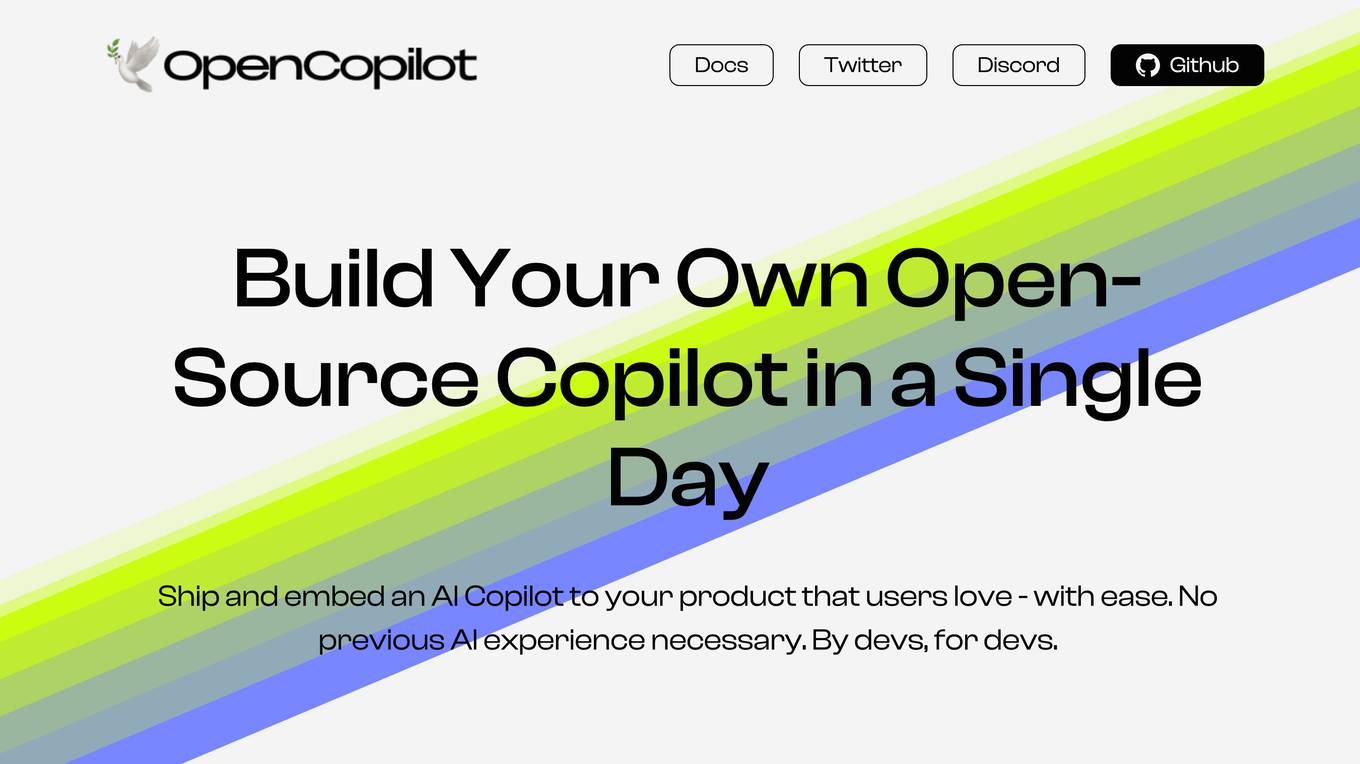
404 Error Notifier
The website displays a 404 error message indicating that the deployment cannot be found. It provides a code (DEPLOYMENT_NOT_FOUND) and an ID (sin1::7rd4m-1725901316906-8c71a7a2cbd7) for reference. Users are directed to check the documentation for further information and troubleshooting.
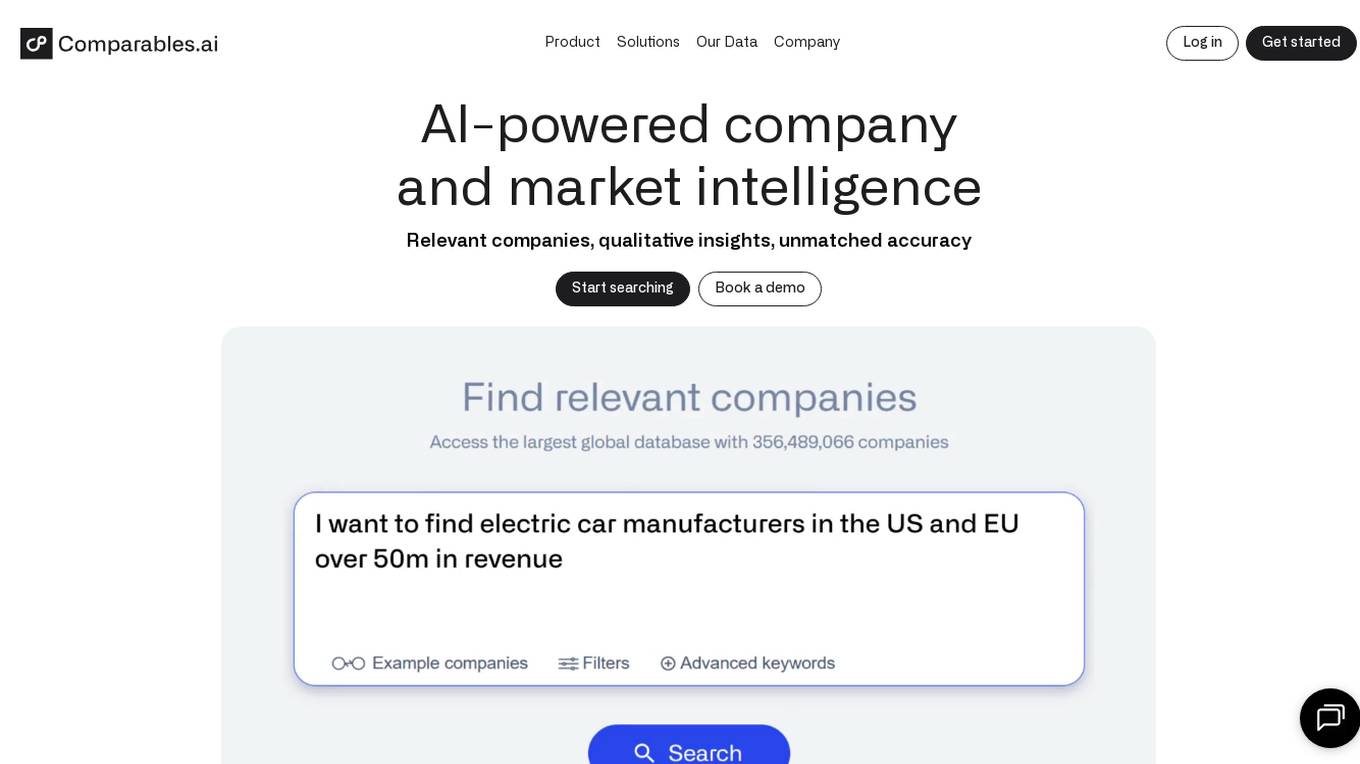
Comparables.ai
Comparables.ai is an AI-powered company and market intelligence platform designed for M&A professionals. It offers comprehensive data insights, valuation multiples, and market analysis to help users make informed decisions in investment banking, private equity, and corporate finance. The platform leverages AI technology to provide relevant company information, financial data, and M&A transaction history, enabling users to identify new investment targets, benchmark companies, and conduct market analysis efficiently.
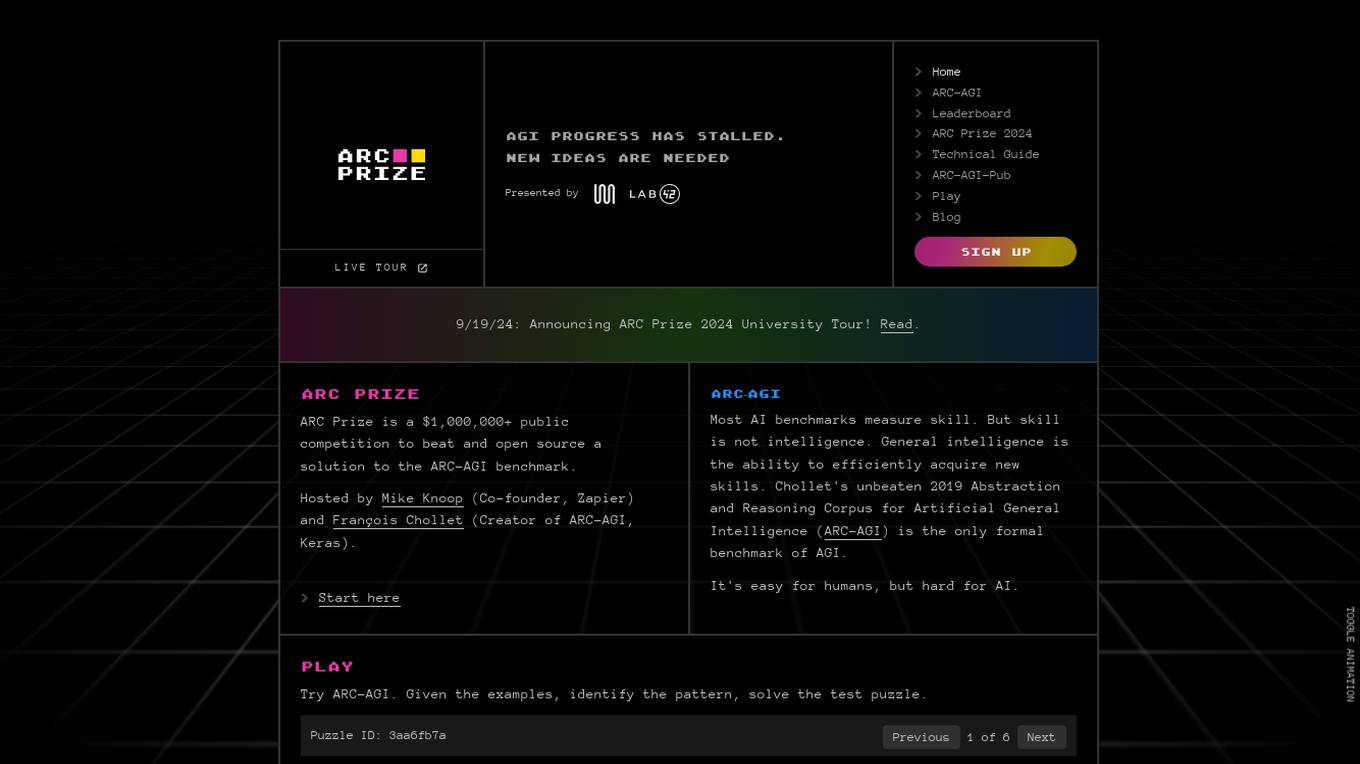
ARC Prize
ARC Prize is a platform hosting a $1,000,000+ public competition aimed at beating and open-sourcing a solution to the ARC-AGI benchmark. The platform is dedicated to advancing open artificial general intelligence (AGI) for the public benefit. It provides a formal benchmark, ARC-AGI, created by François Chollet, to measure progress towards AGI by testing the ability to efficiently acquire new skills and solve open-ended problems. ARC Prize encourages participants to try solving test puzzles to identify patterns and improve their AGI skills.
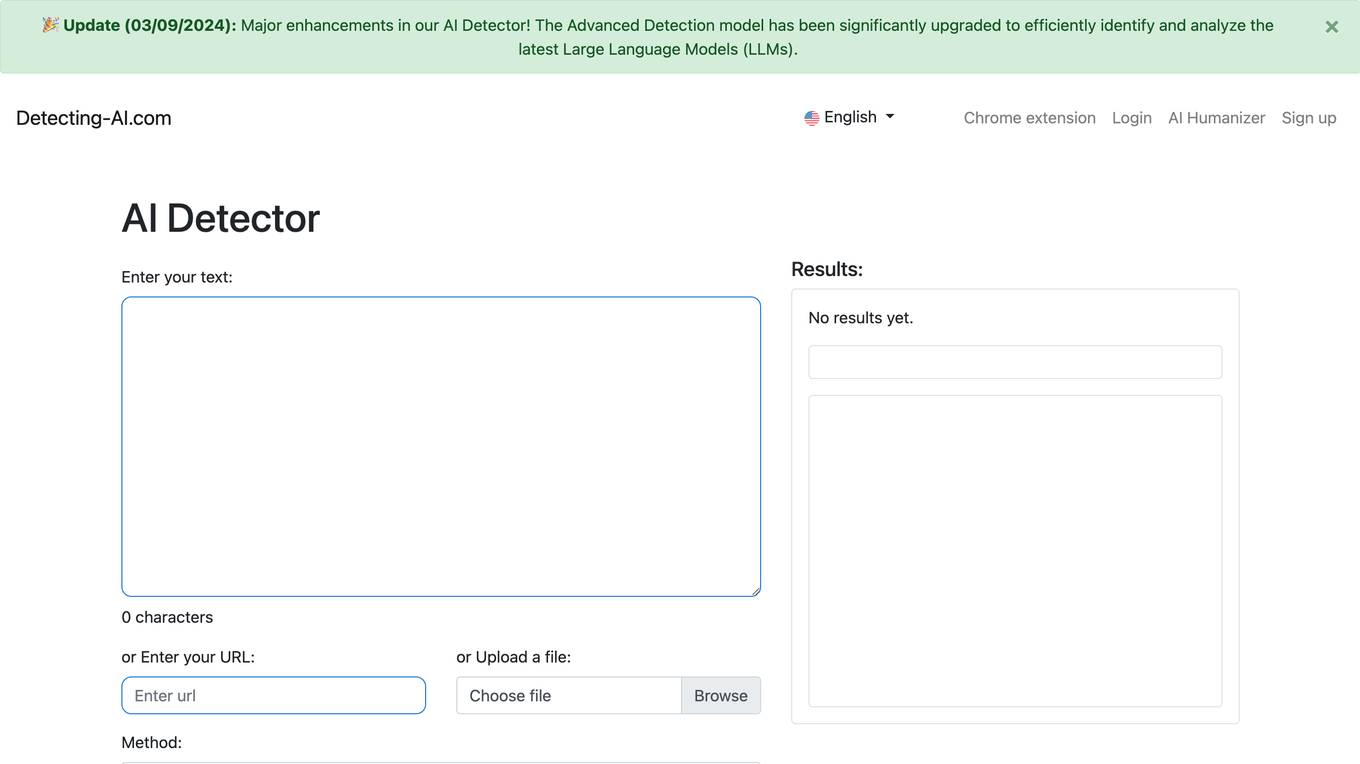
Detecting-AI
Detecting-AI is an advanced AI detection tool that provides accurate identification of AI-generated content in documents. It offers comprehensive insights by analyzing text patterns, sentence structures, and linguistic markers to ensure 99% detection accuracy. The tool is GDPR compliant, ensuring enterprise security for users from 200+ universities across 25+ countries. Detecting-AI is designed to help students, educators, bloggers, researchers, and businesses safeguard their work's integrity and authenticity.
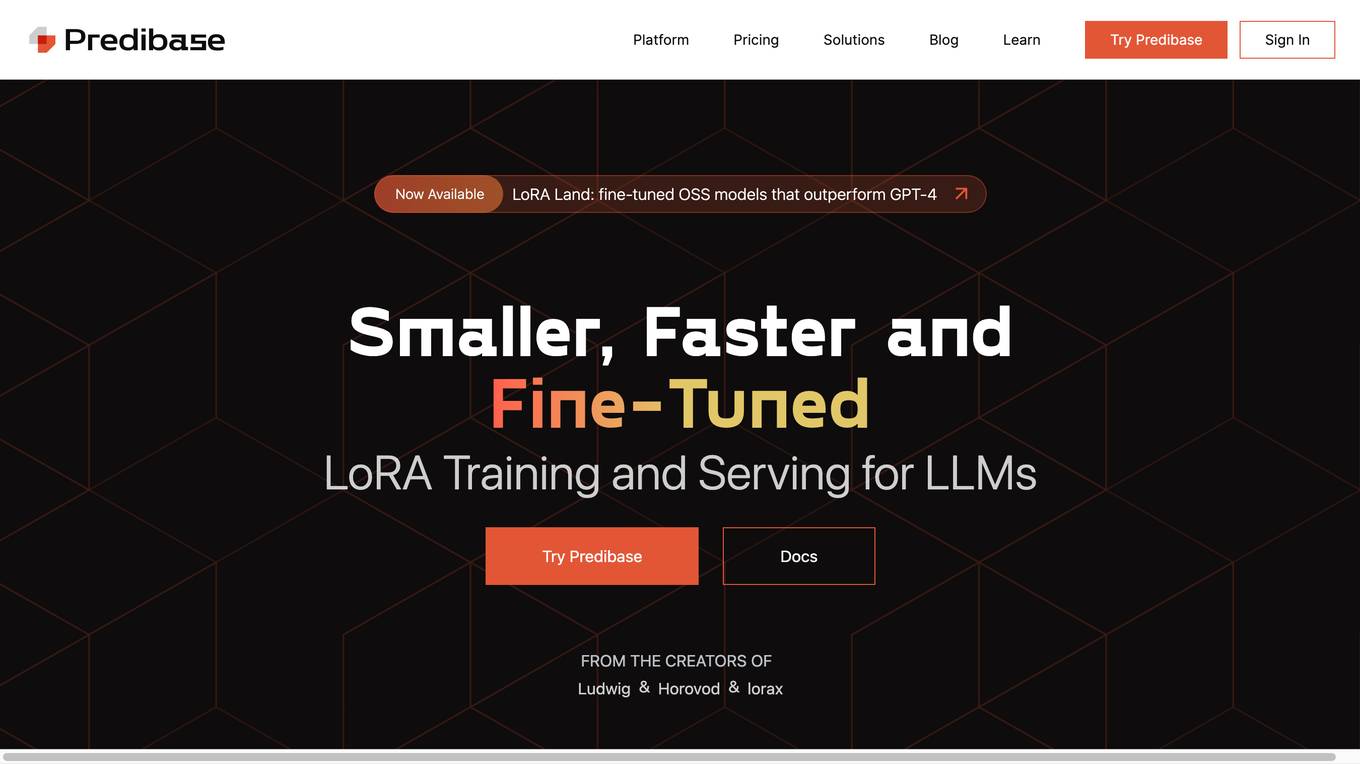
Predibase
Predibase is a platform for fine-tuning and serving Large Language Models (LLMs). It provides a cost-effective and efficient way to train and deploy LLMs for a variety of tasks, including classification, information extraction, customer sentiment analysis, customer support, code generation, and named entity recognition. Predibase is built on proven open-source technology, including LoRAX, Ludwig, and Horovod.
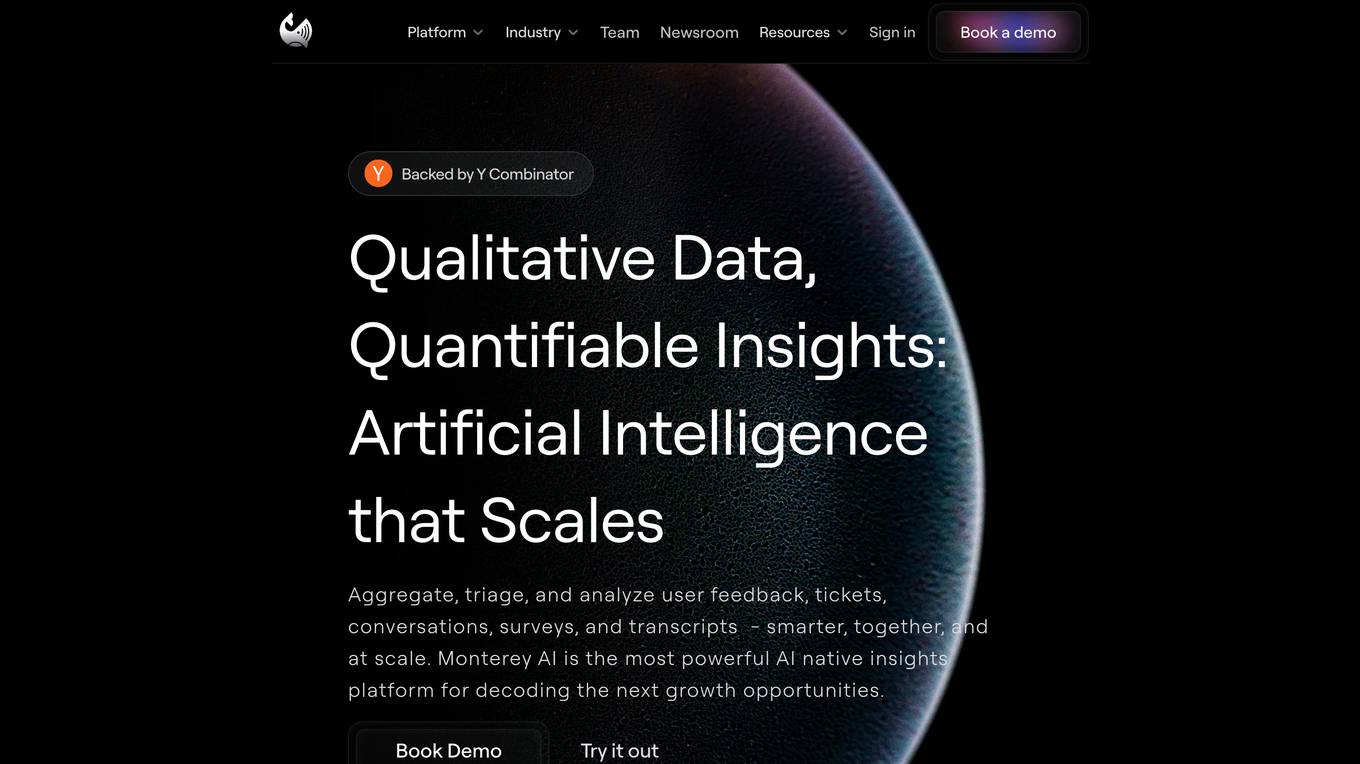
Monterey AI
Monterey AI is an AI-powered insights platform that helps businesses understand their customers' needs and build better products. It aggregates, triages, and analyzes user feedback, tickets, conversations, surveys, and transcripts to provide businesses with real-time insights into what their customers are saying and what they want. Monterey AI is used by businesses of all sizes, from startups to Fortune 20 companies, to improve their product development process and build better products that meet the needs of their customers.
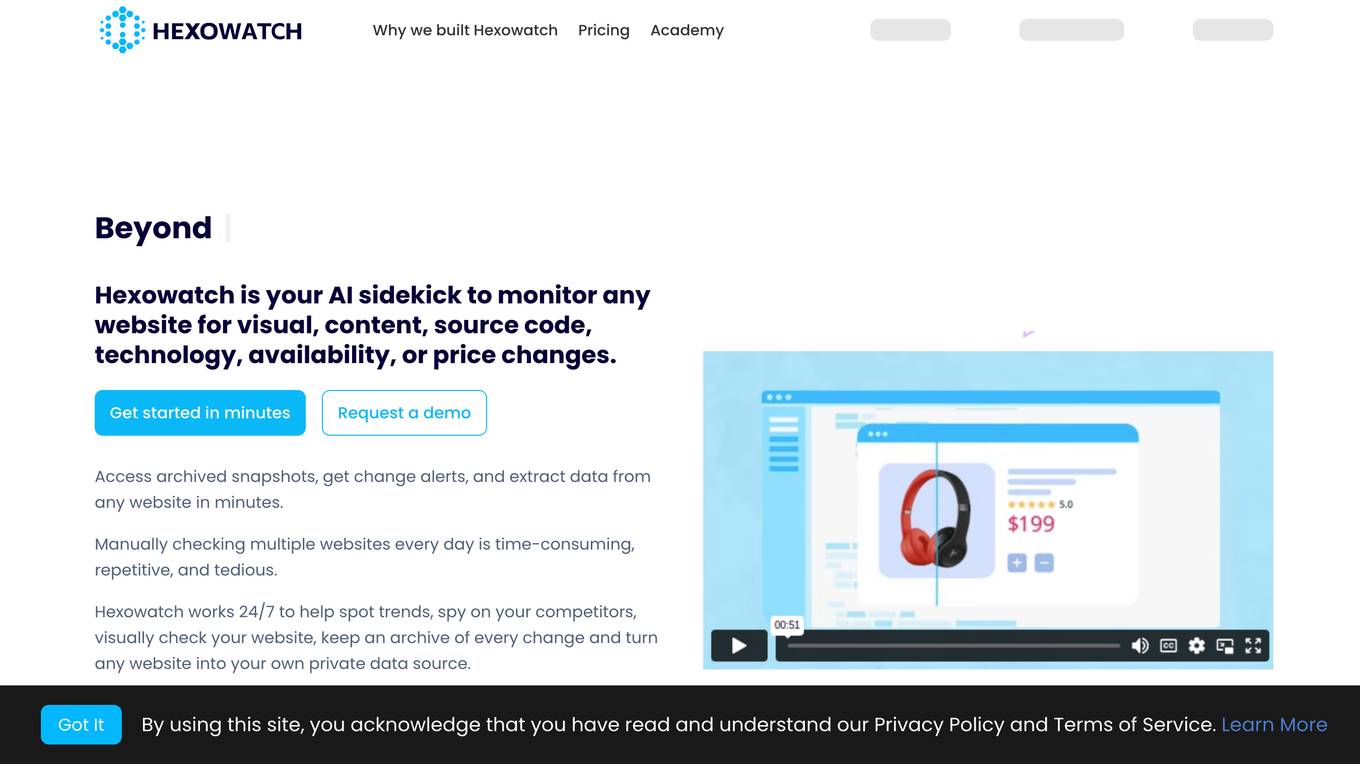
Hexowatch
Hexowatch is an AI-powered website monitoring and archiving tool that helps businesses track changes to any website, including visual, content, source code, technology, availability, or price changes. It provides detailed change reports, archives snapshots of pages, and offers side-by-side comparisons and diff reports to highlight changes. Hexowatch also allows users to access monitored data fields as a downloadable CSV file, Google Sheet, RSS feed, or sync any update via Zapier to over 2000 different applications.

Frugal
Frugal is an intelligent application cost engineering platform that optimizes code to reduce cloud costs automatically. It is the first AI-powered cost optimization platform built for engineers, empowering them to find and fix inefficiencies in code that drain cloud budgets. The platform aims to reinvent cost engineering by enabling developers to reduce application costs and improve cloud efficiency through automated identification and resolution of wasteful practices.
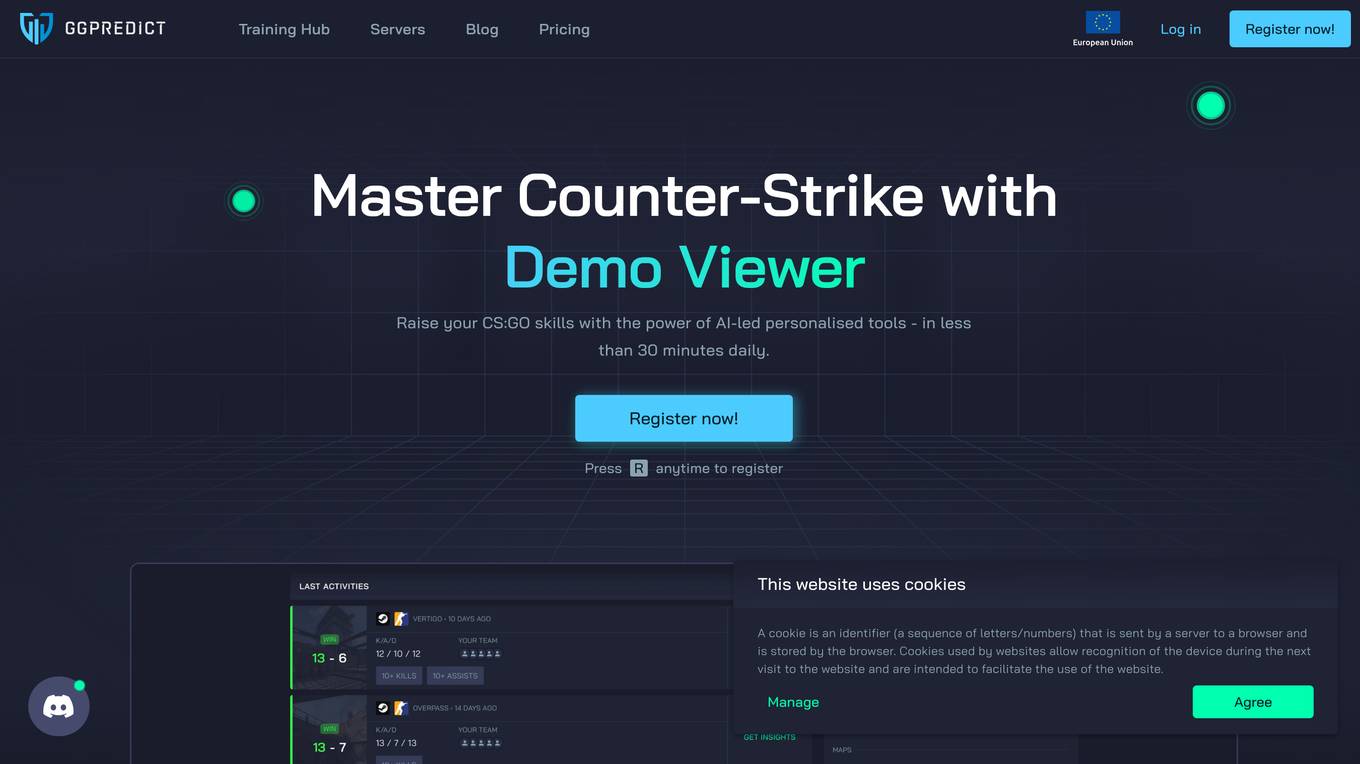
GGPredict.io
GGPredict.io is an AI-powered tool designed to help Counter-Strike: Global Offensive (CS:GO) players improve their skills through personalized challenges and analytics. The platform offers detailed performance analysis, cutting-edge maps for practice, dynamic leaderboards, and AI-led tools to track progress and identify areas for improvement. With endorsements from professional players and coaches, GGPredict.io aims to help players of all levels enhance their gameplay and reach their full potential.

MagicBrief
MagicBrief is a creative analytics and research tool trusted by thousands of teams to transform messy ad data into clear creative direction and winning ads. It bridges the gap between media and creative, driving revenue and improving ad spend efficiency. The tool helps users identify winning creative angles, track competitors, create winning briefs, and improve creative strategies. MagicBrief offers visual reports, AI-powered recommendations, and insights on ad performance, enabling users to make data-driven decisions and scale winners faster. It also provides support through onboarding calls, account managers, and a dedicated Slack channel.
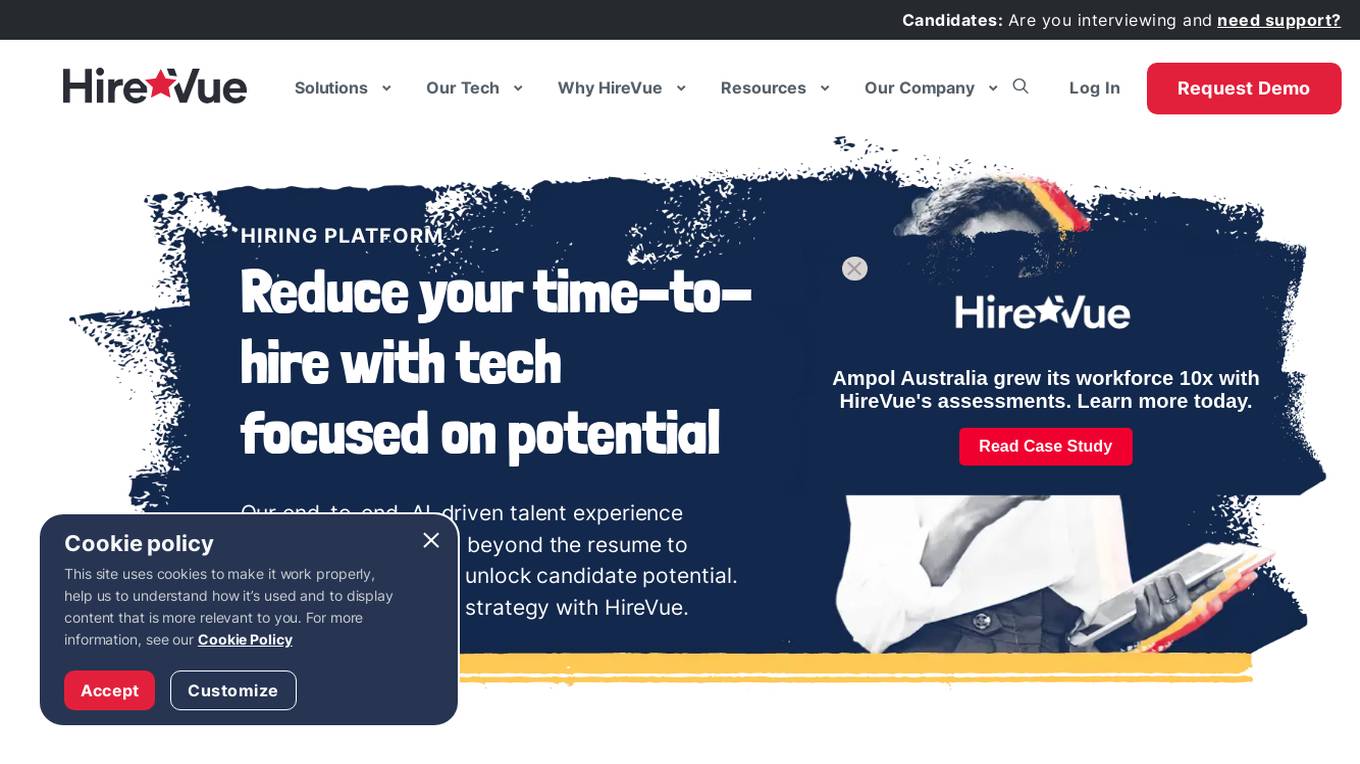
HireVue
HireVue is an AI-driven hiring platform that aims to connect talent to opportunity and unlock the potential in every candidate. By leveraging AI-driven technology, HireVue empowers teams to identify candidate potential and traits that predict future success. The platform offers solutions for hourly hiring, campus hiring, professional hiring, and technical hiring, enabling fair and transparent hiring processes. HireVue's structured interviews, text-powered automated workflow, and flexible solutions streamline the hiring process, ensuring consistent talent assessment and faster hiring decisions.
0 - Open Source AI Tools
20 - OpenAI Gpts
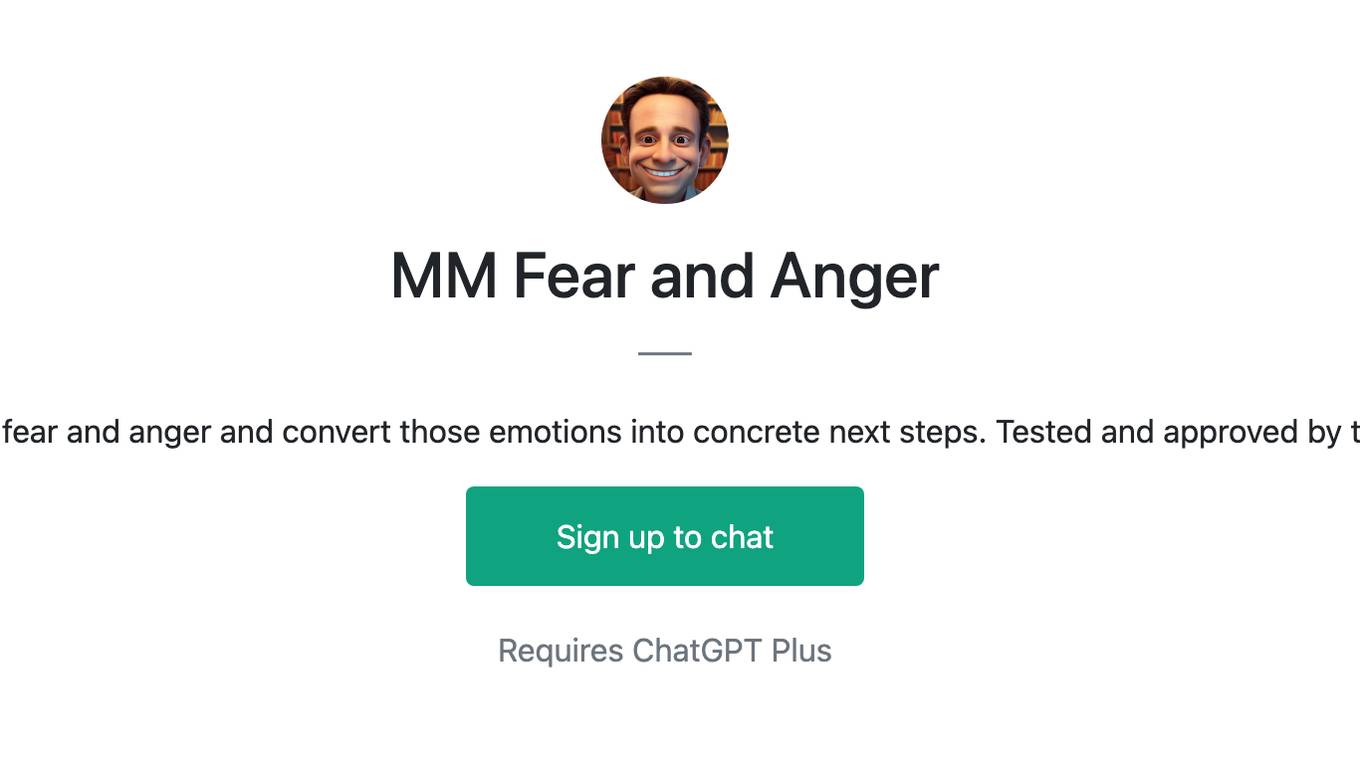
MM Fear and Anger
Identify your sources of fear and anger and convert those emotions into concrete next steps. Tested and approved by the real Matt Mochary!
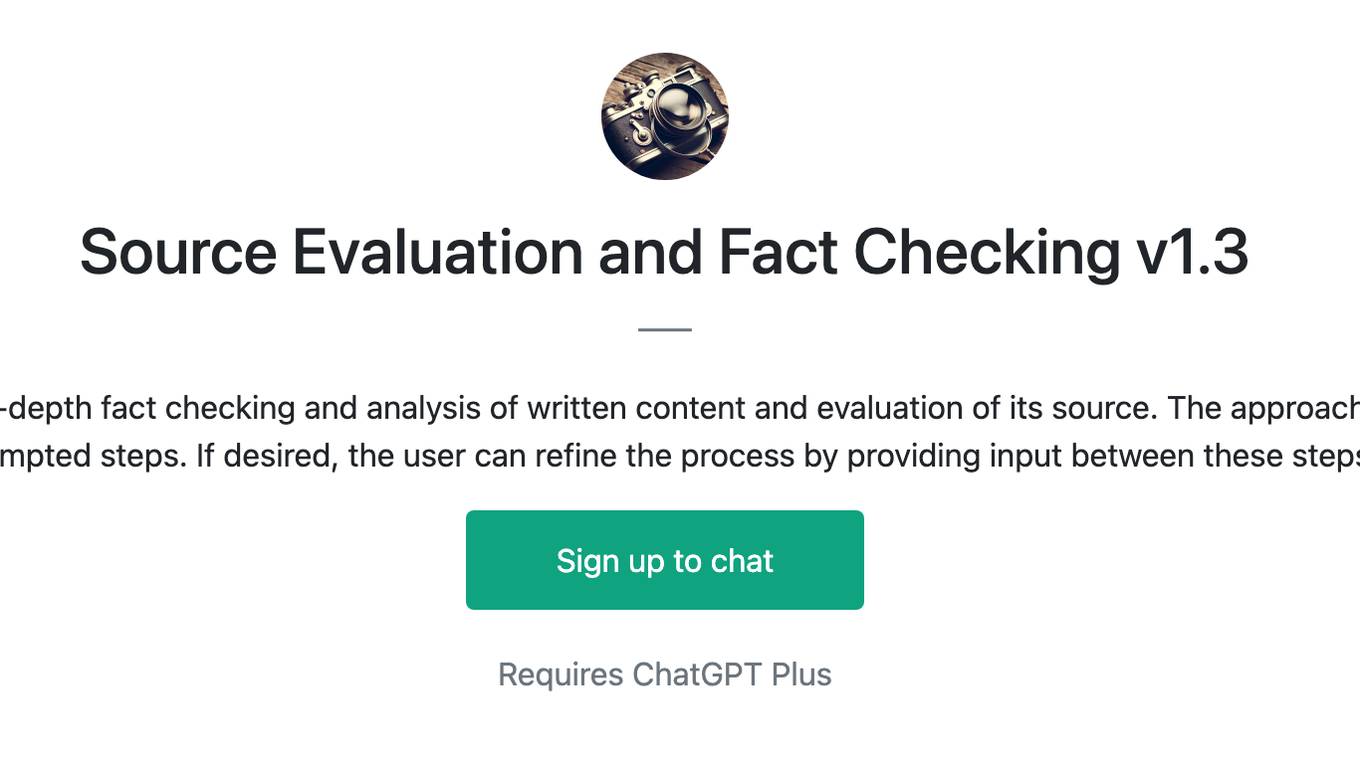
Source Evaluation and Fact Checking v1.3
FactCheck Navigator GPT is designed for in-depth fact checking and analysis of written content and evaluation of its source. The approach is to iterate through predefined and well-prompted steps. If desired, the user can refine the process by providing input between these steps.
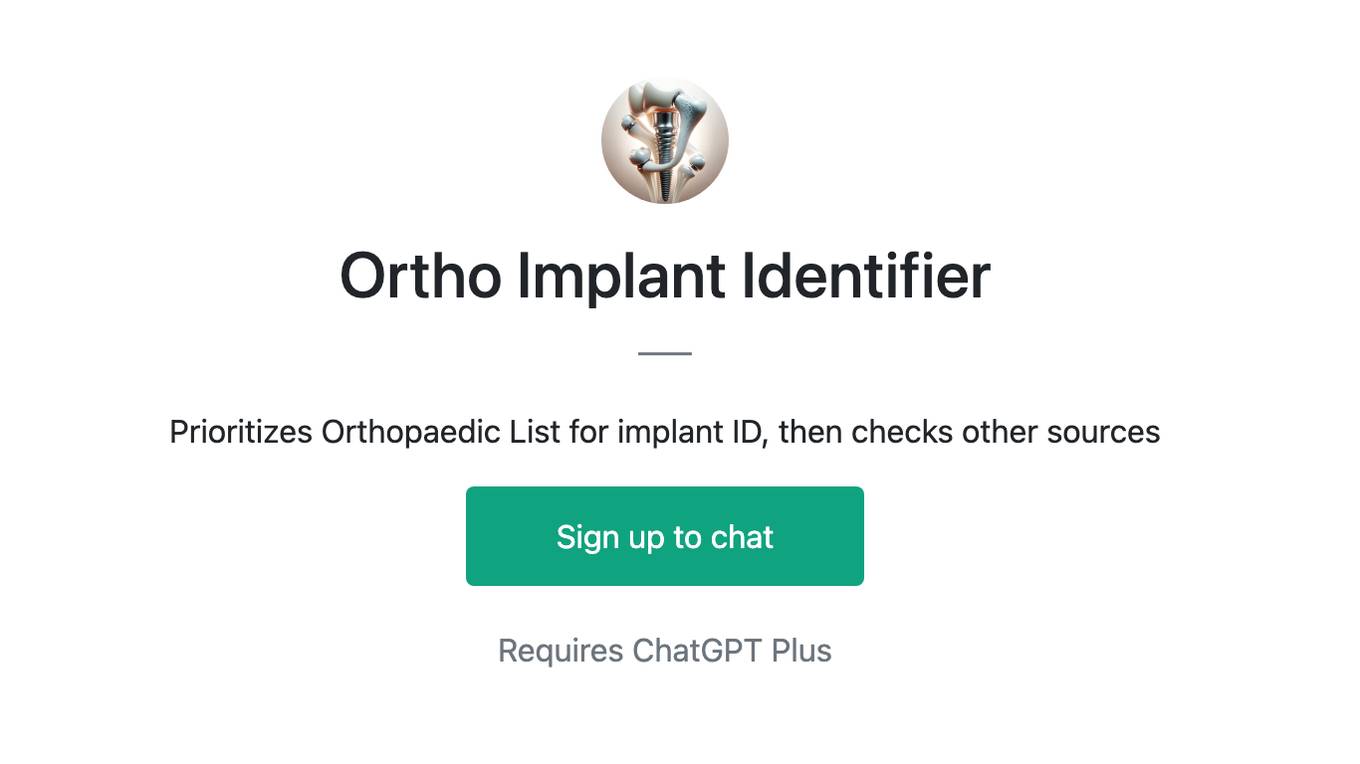
Ortho Implant Identifier
Prioritizes Orthopaedic List for implant ID, then checks other sources
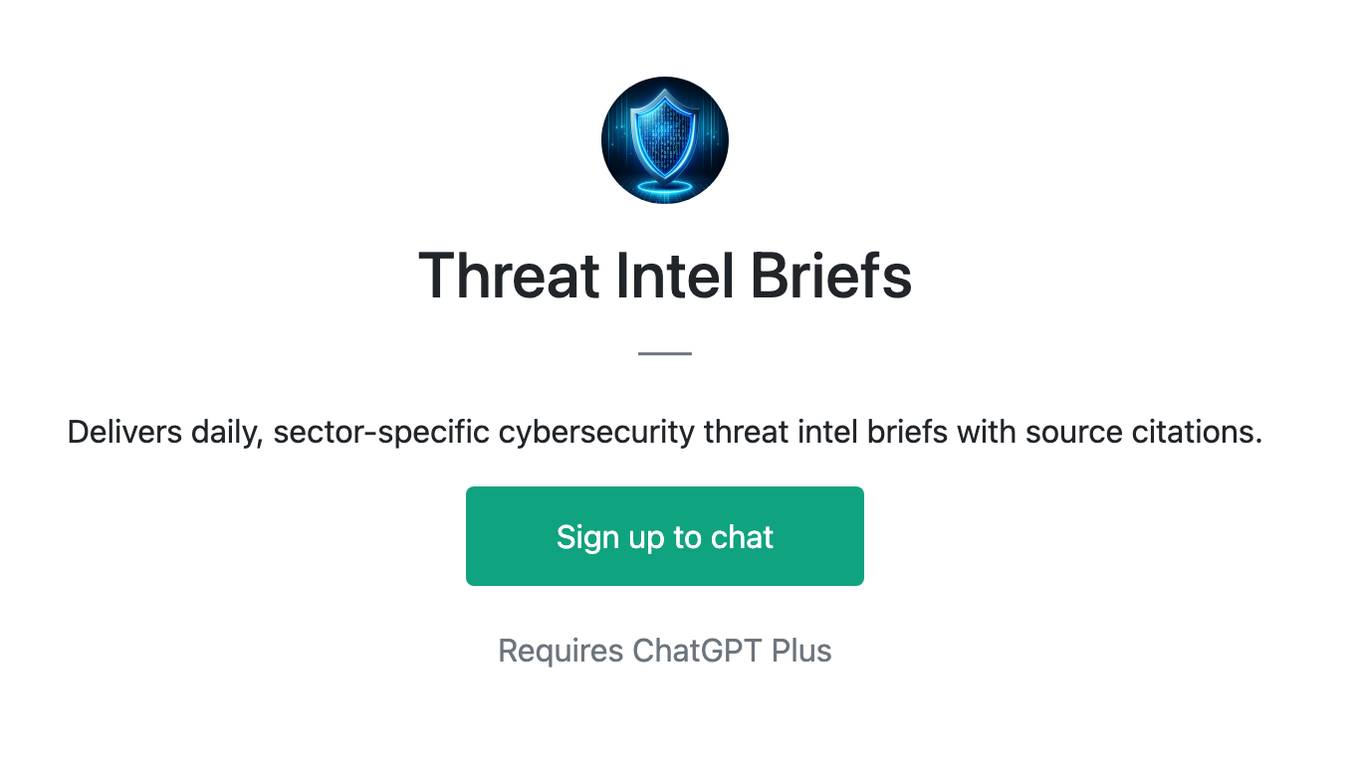
Threat Intel Briefs
Delivers daily, sector-specific cybersecurity threat intel briefs with source citations.
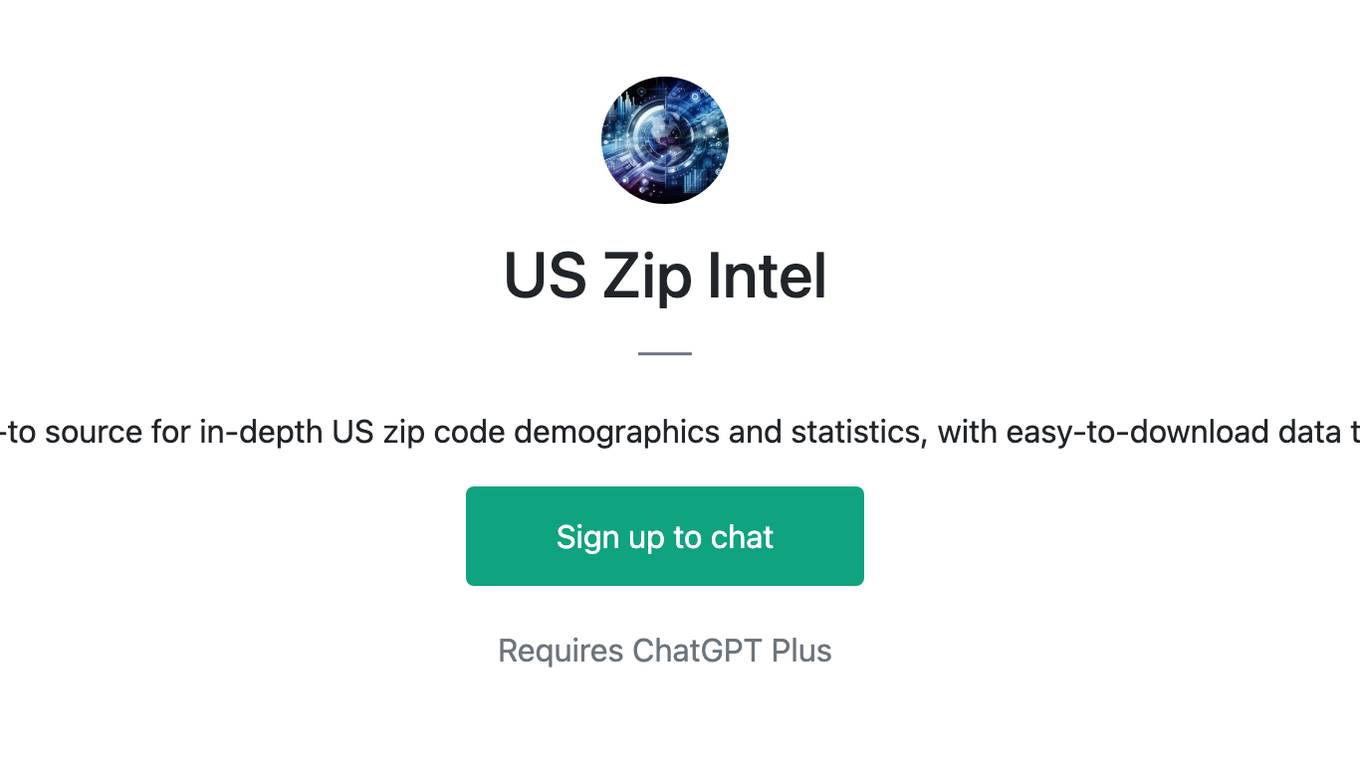
US Zip Intel
Your go-to source for in-depth US zip code demographics and statistics, with easy-to-download data tables.
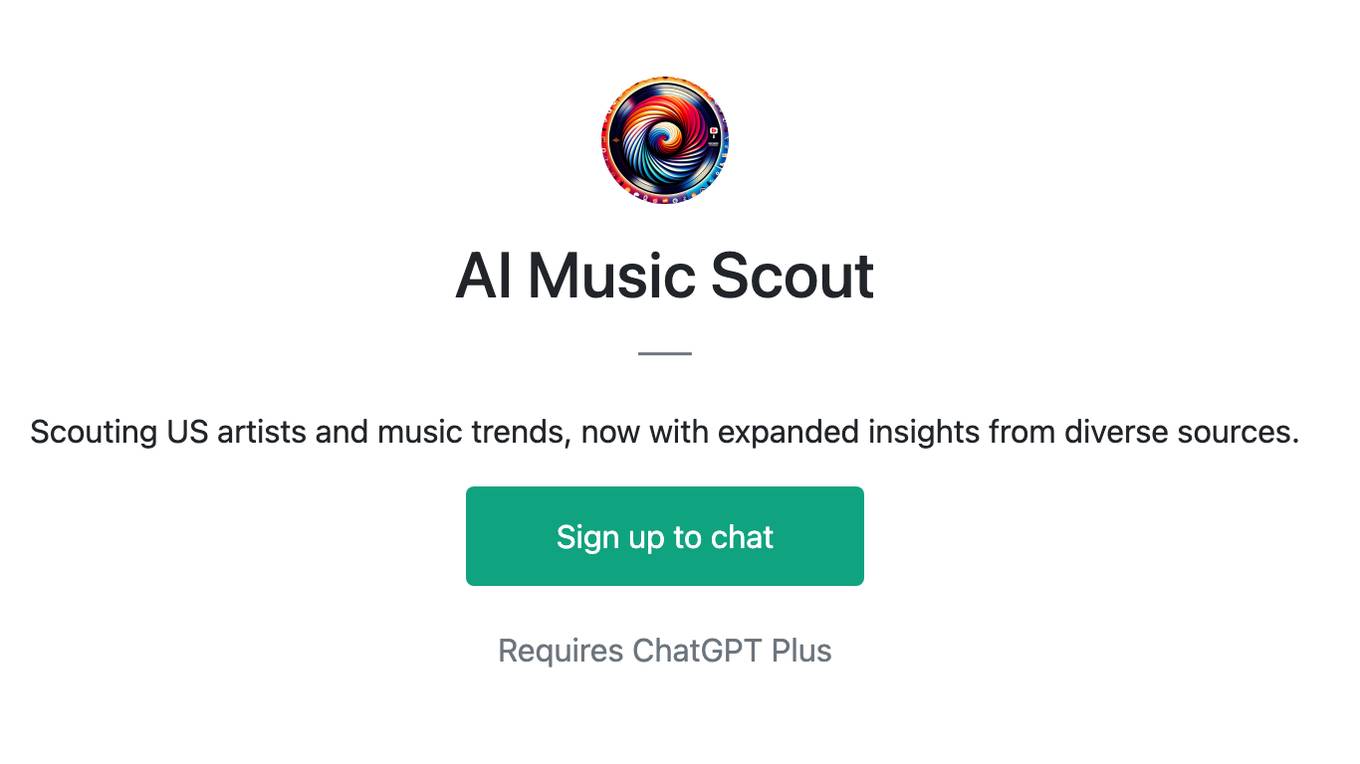
AI Music Scout
Scouting US artists and music trends, now with expanded insights from diverse sources.
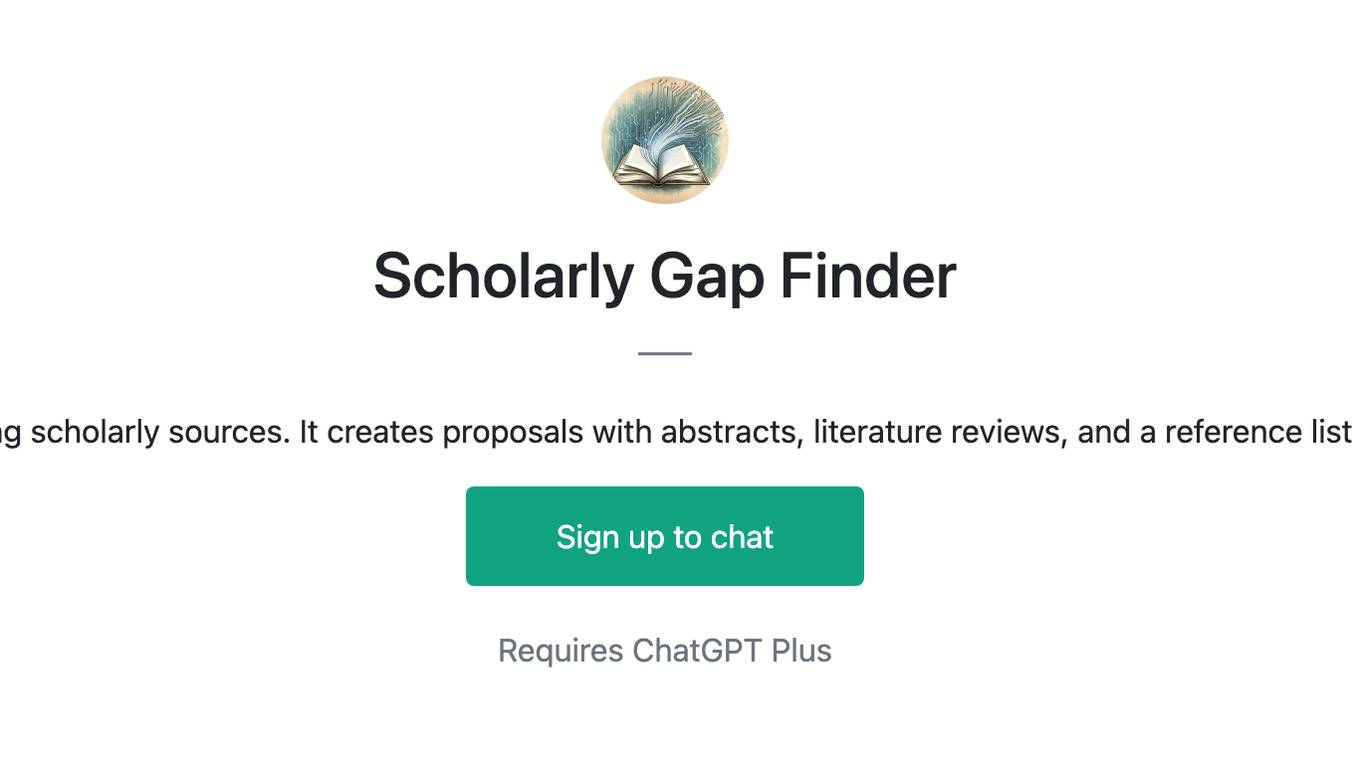
Scholarly Gap Finder
SGF identifies research gaps using scholarly sources. It creates proposals with abstracts, literature reviews, and a reference list tailored for academic research.
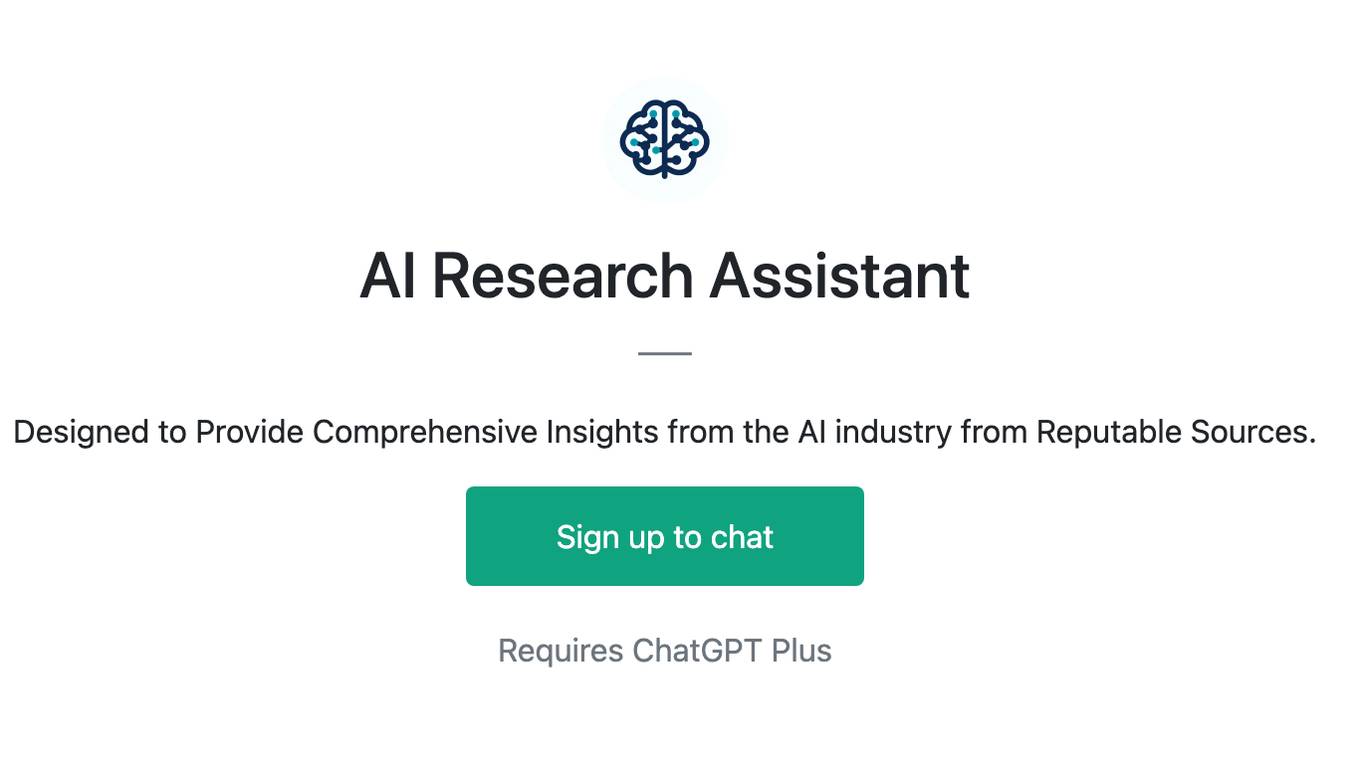
AI Research Assistant
Designed to Provide Comprehensive Insights from the AI industry from Reputable Sources.
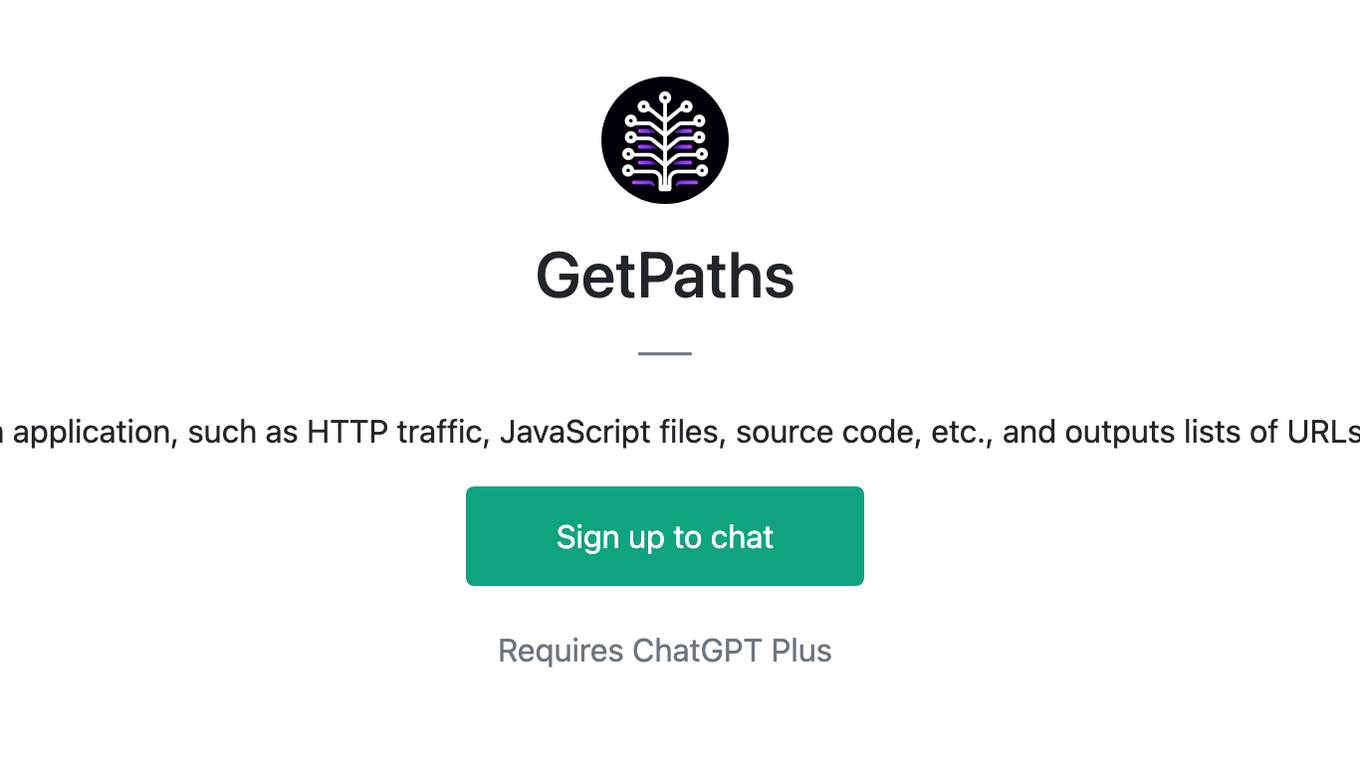
GetPaths
This GPT takes in content related to an application, such as HTTP traffic, JavaScript files, source code, etc., and outputs lists of URLs that can be used for further testing.

Malware Rule Master
Expert in malware analysis and Yara rules, using web sources for specifics.
